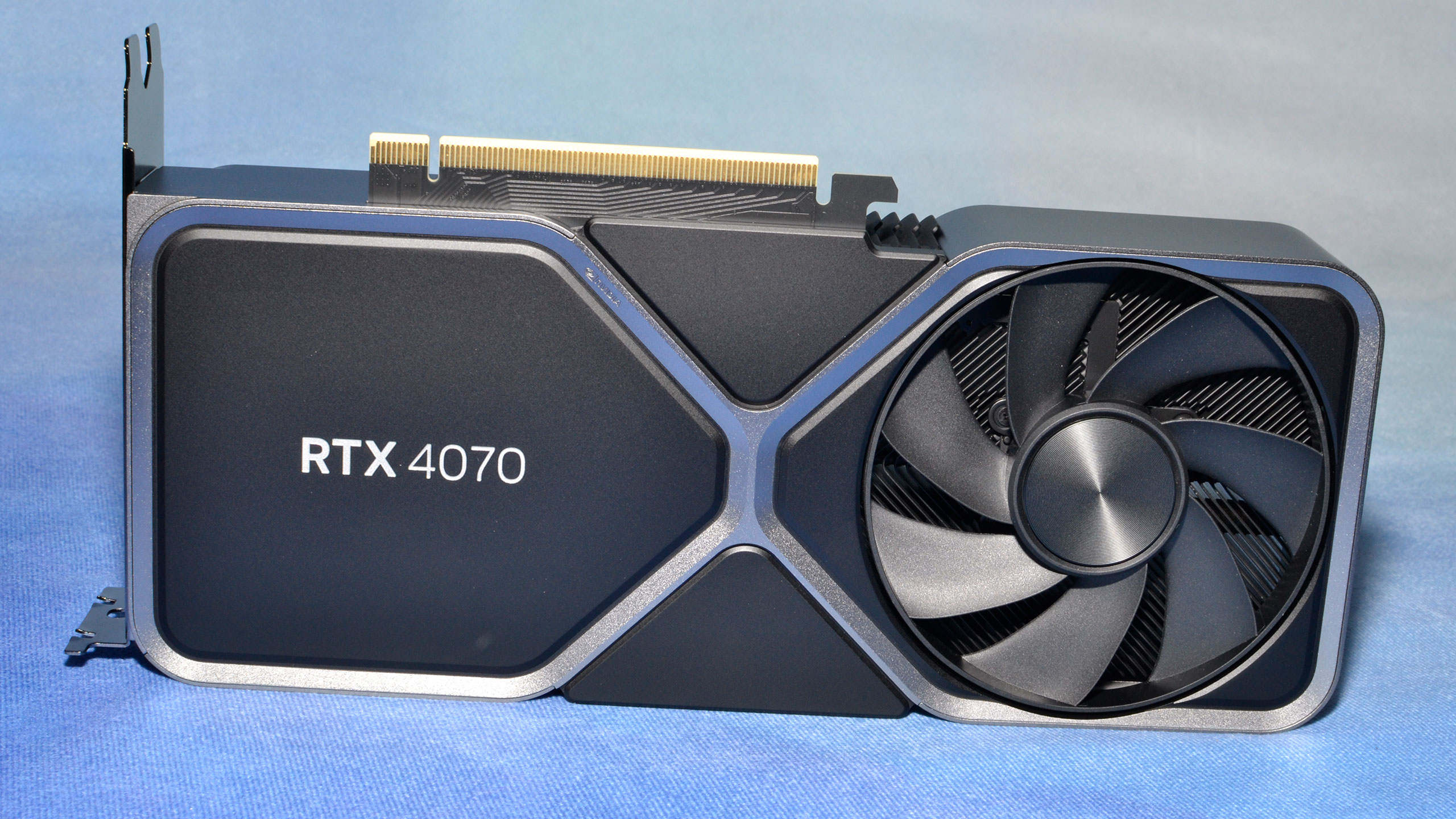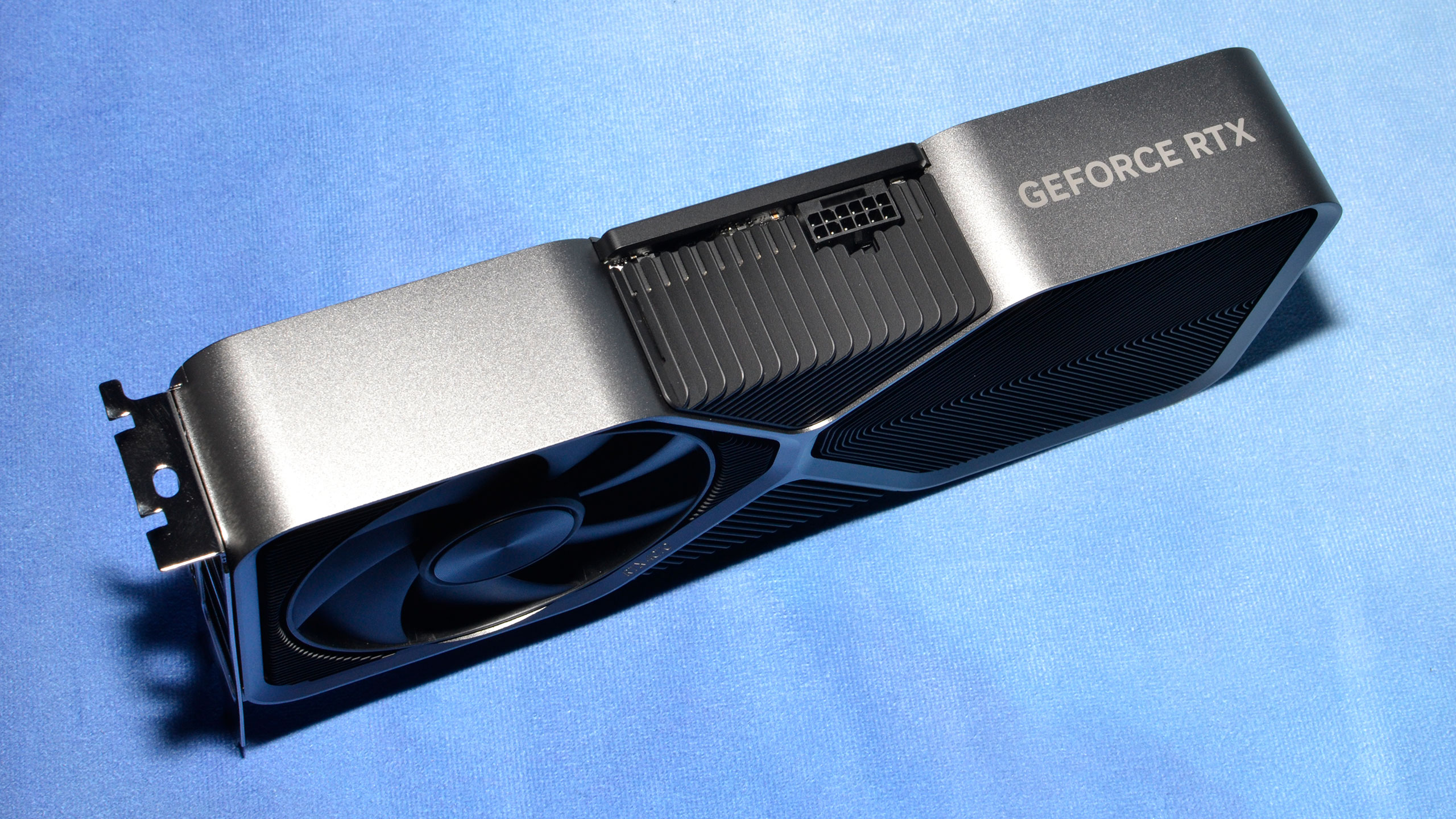Why you can trust Tom's Hardware
We measure real-world power consumption using Powenetics testing hardware and software. We capture in-line GPU power consumption by collecting data while looping Metro Exodus (the original, not the enhanced version) and while running the FurMark stress test. We also check noise levels using an SPL meter. Our test PC for Powenetics remains the same old Core i9-9900K as we've used previously, to keep results consistent.
We also collect power data on our newer 13900K platform using PCAT v2 hardware, which gives a wider view of power use and efficiency. We'll start with the gallery of our PCAT results.
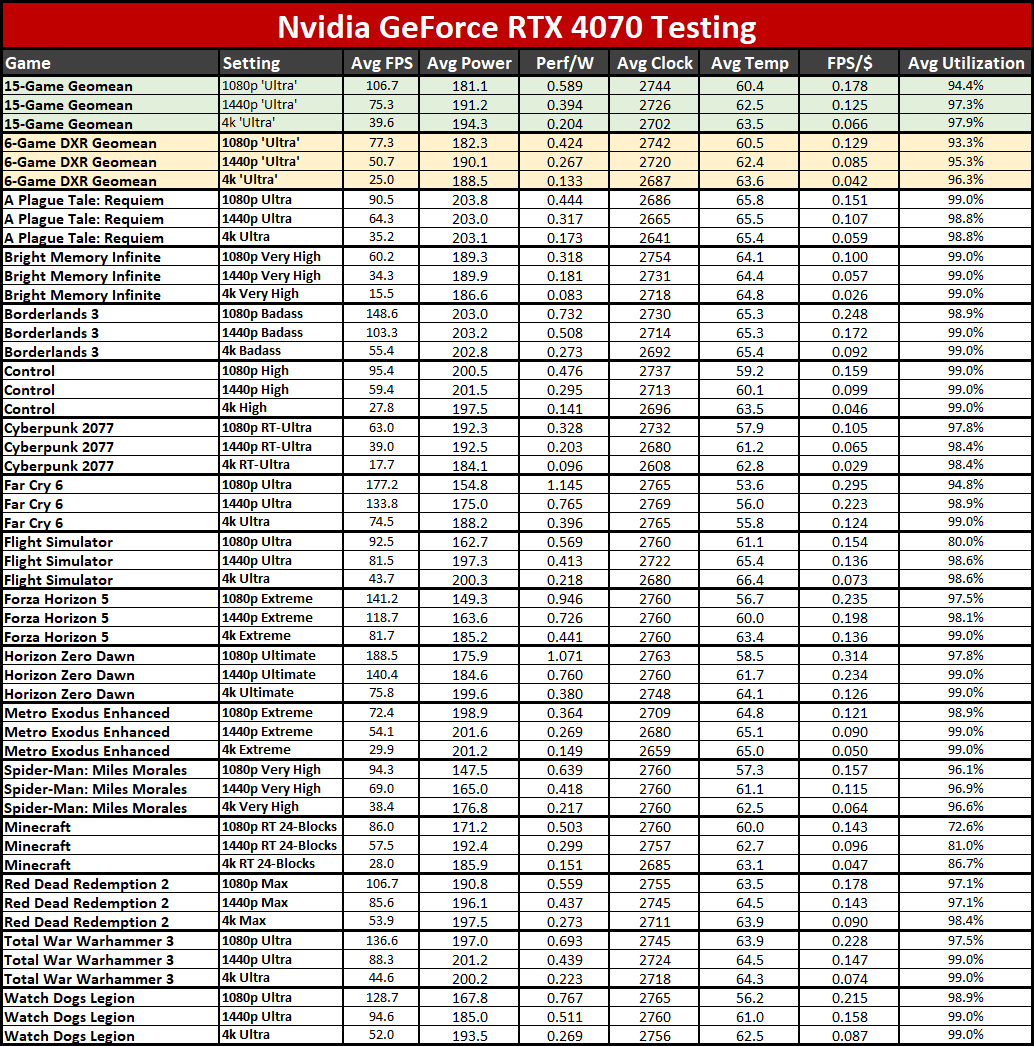
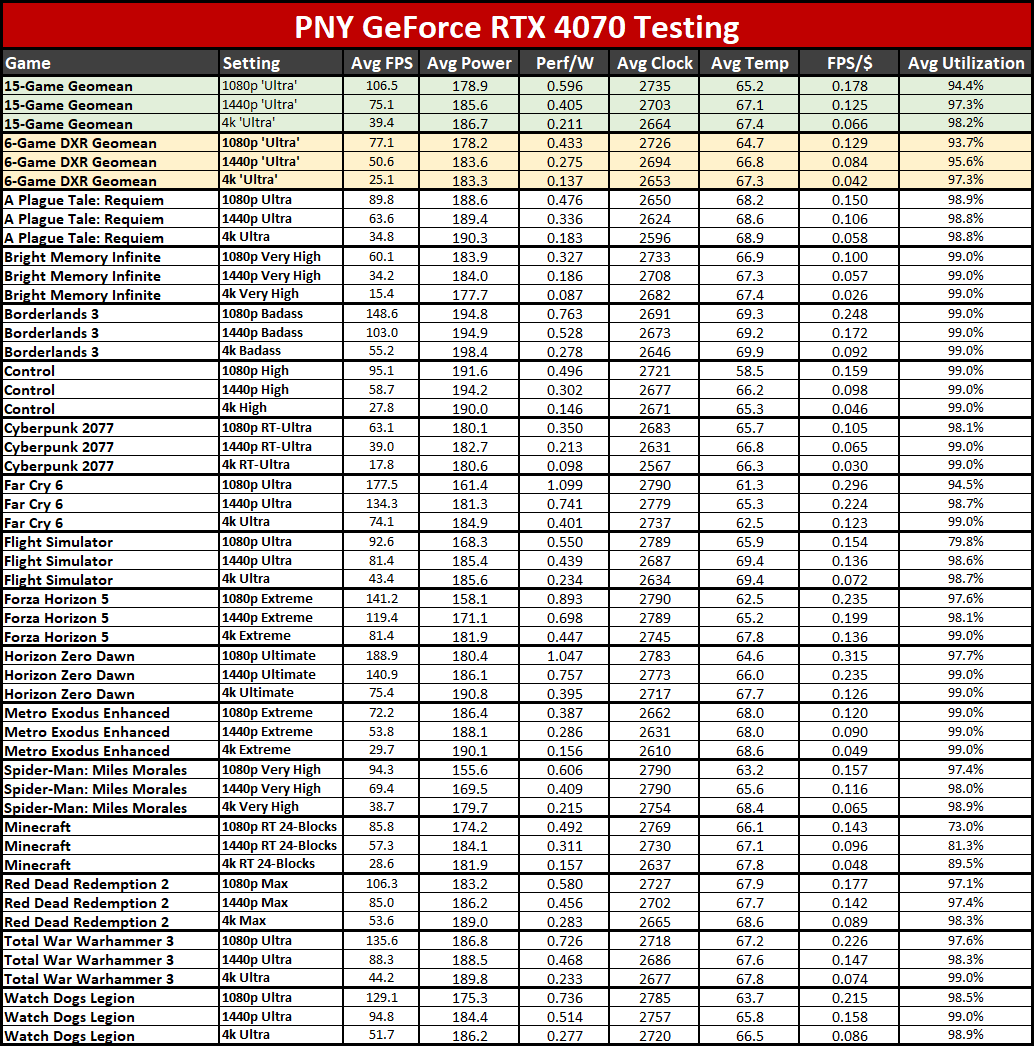
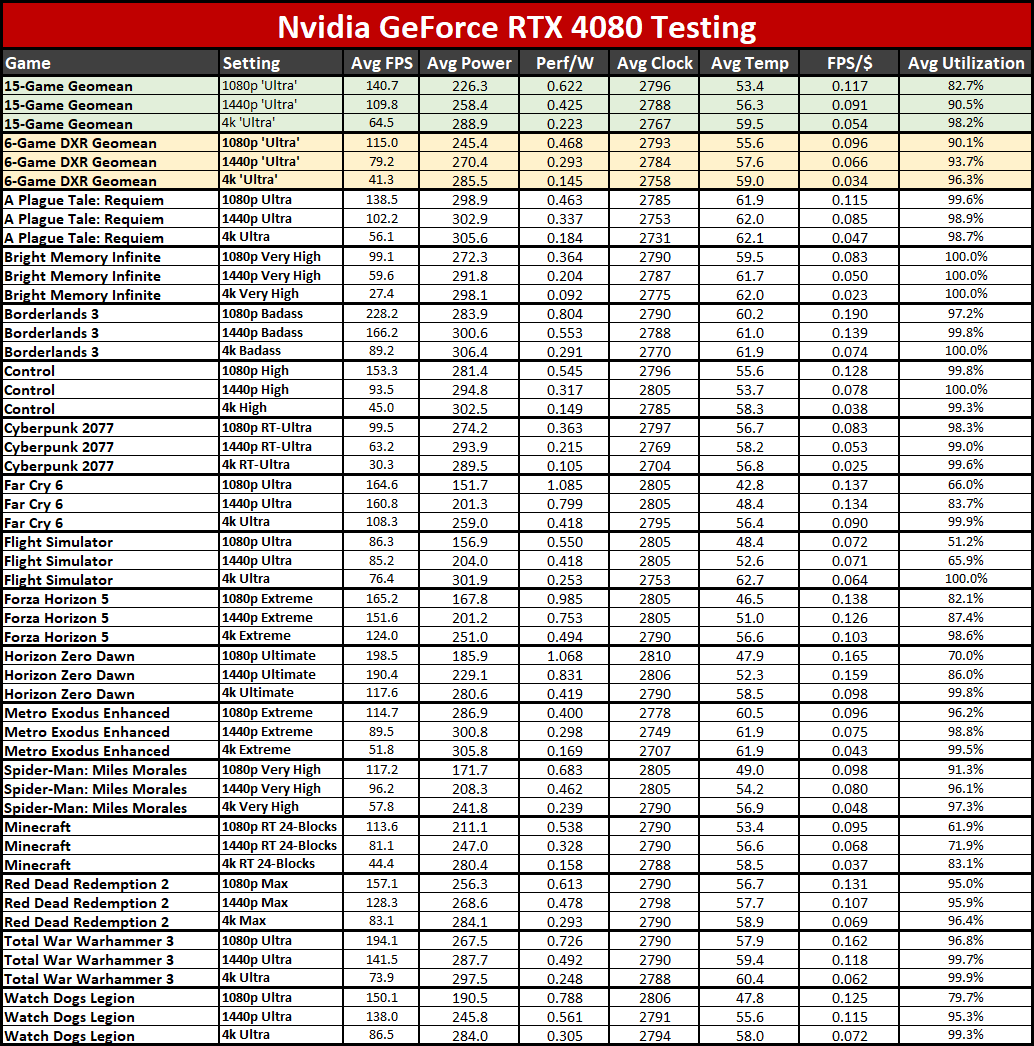
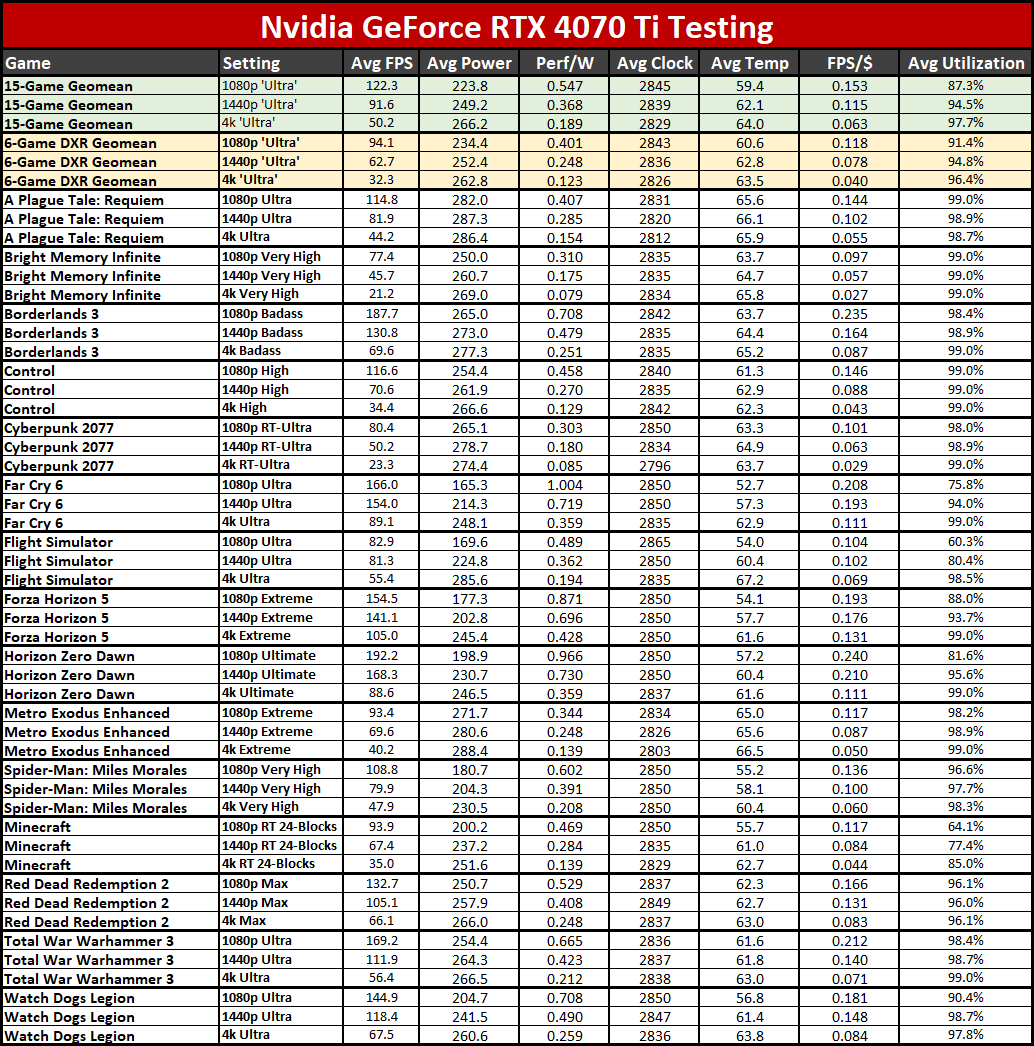
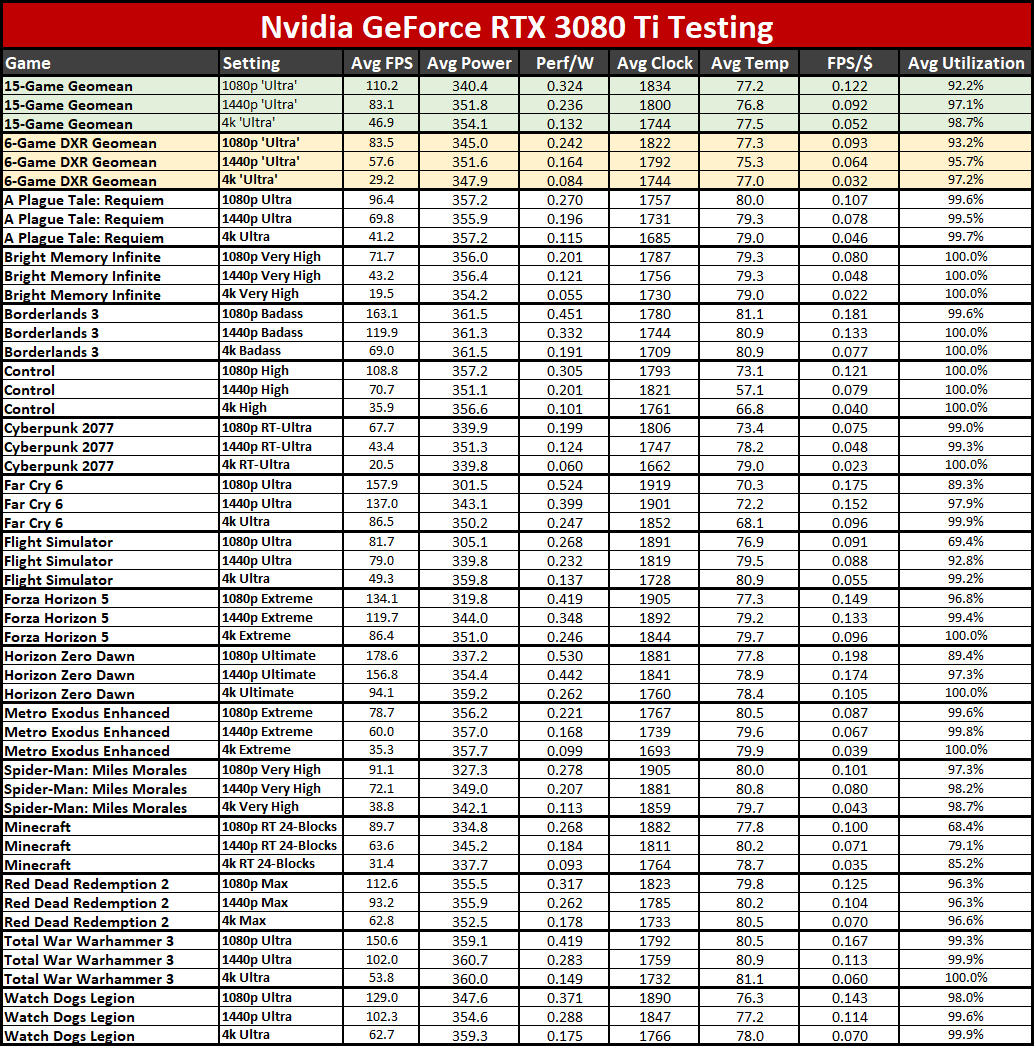
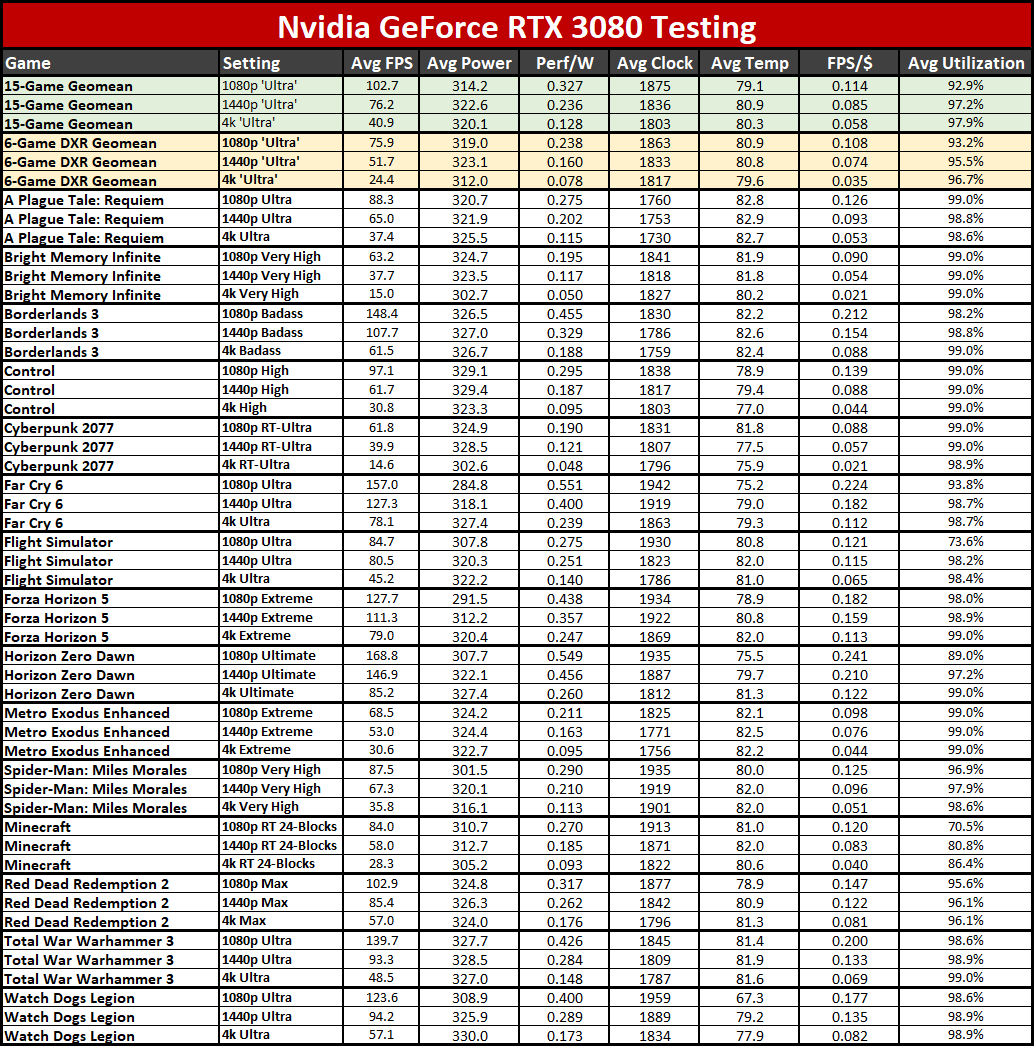
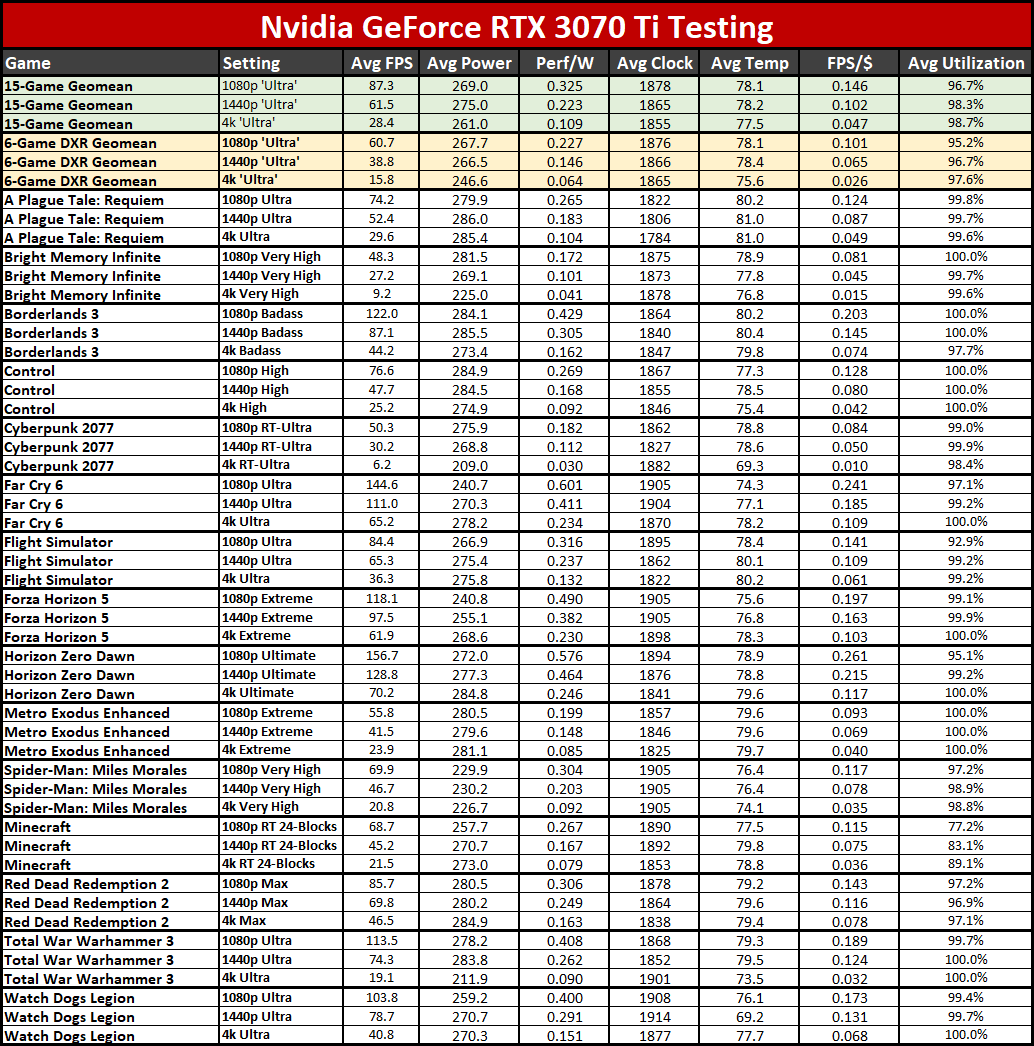
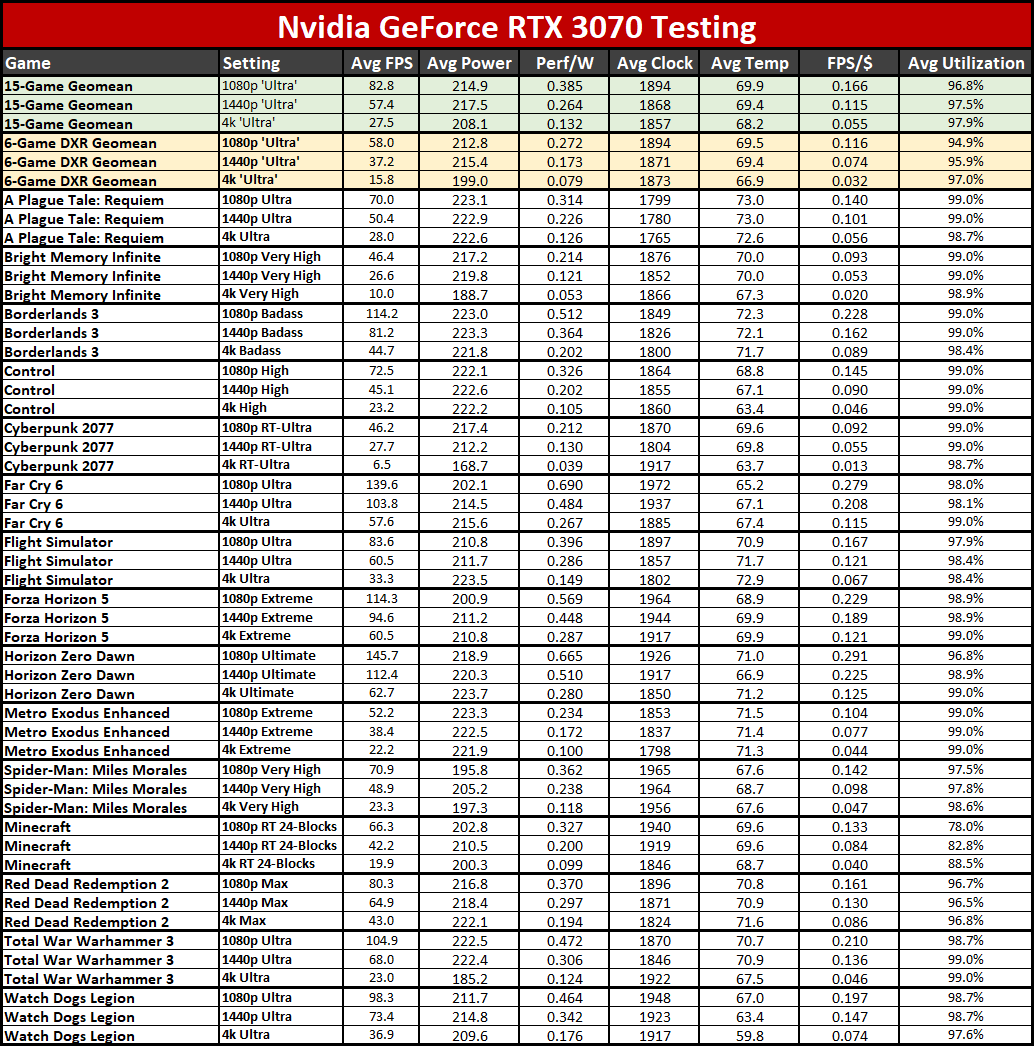
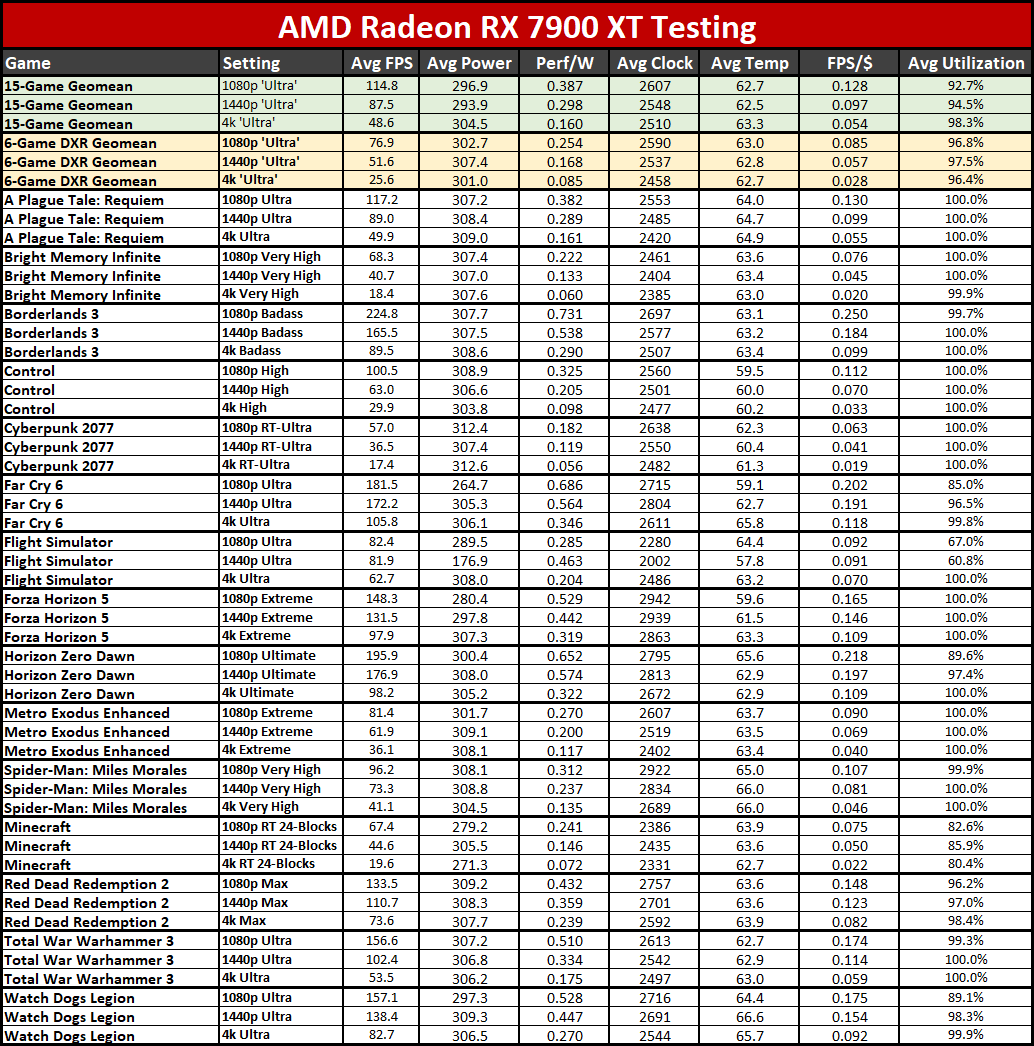
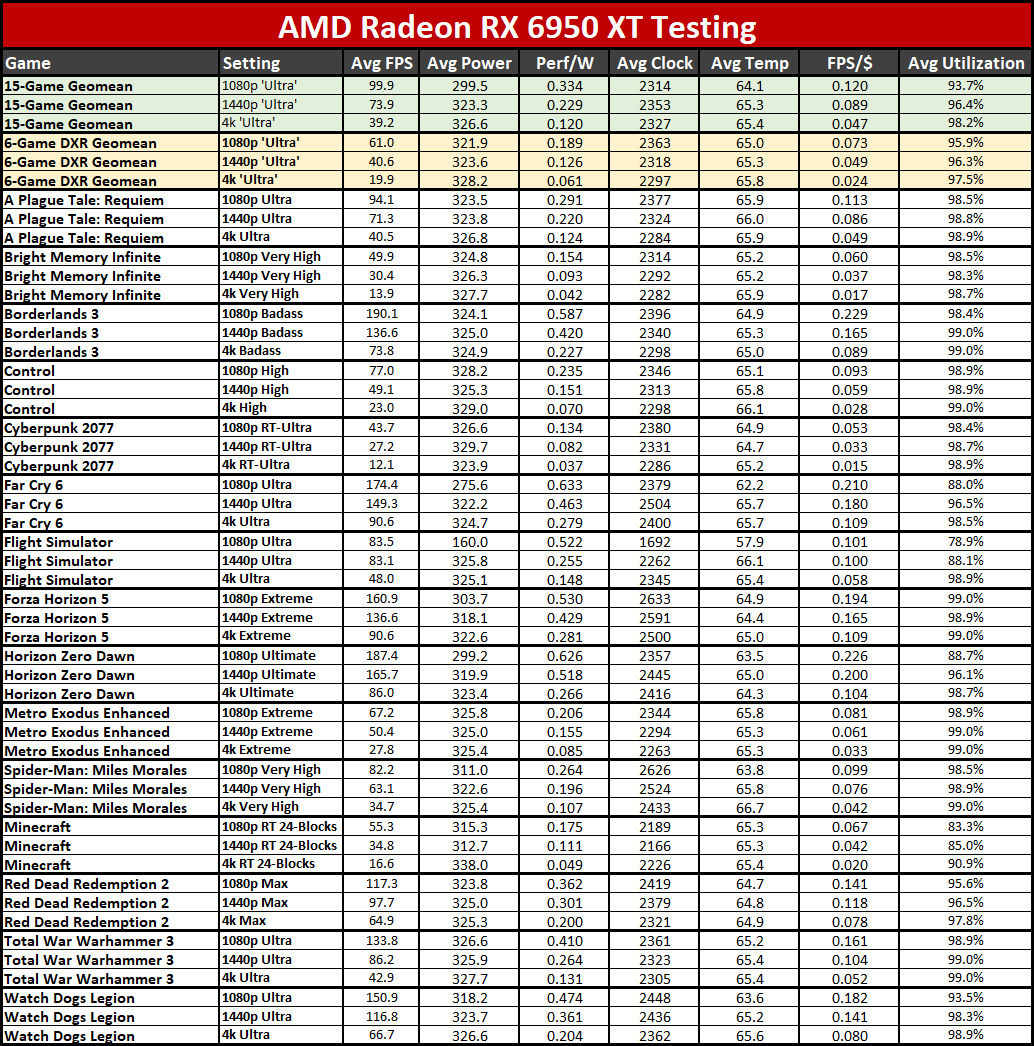
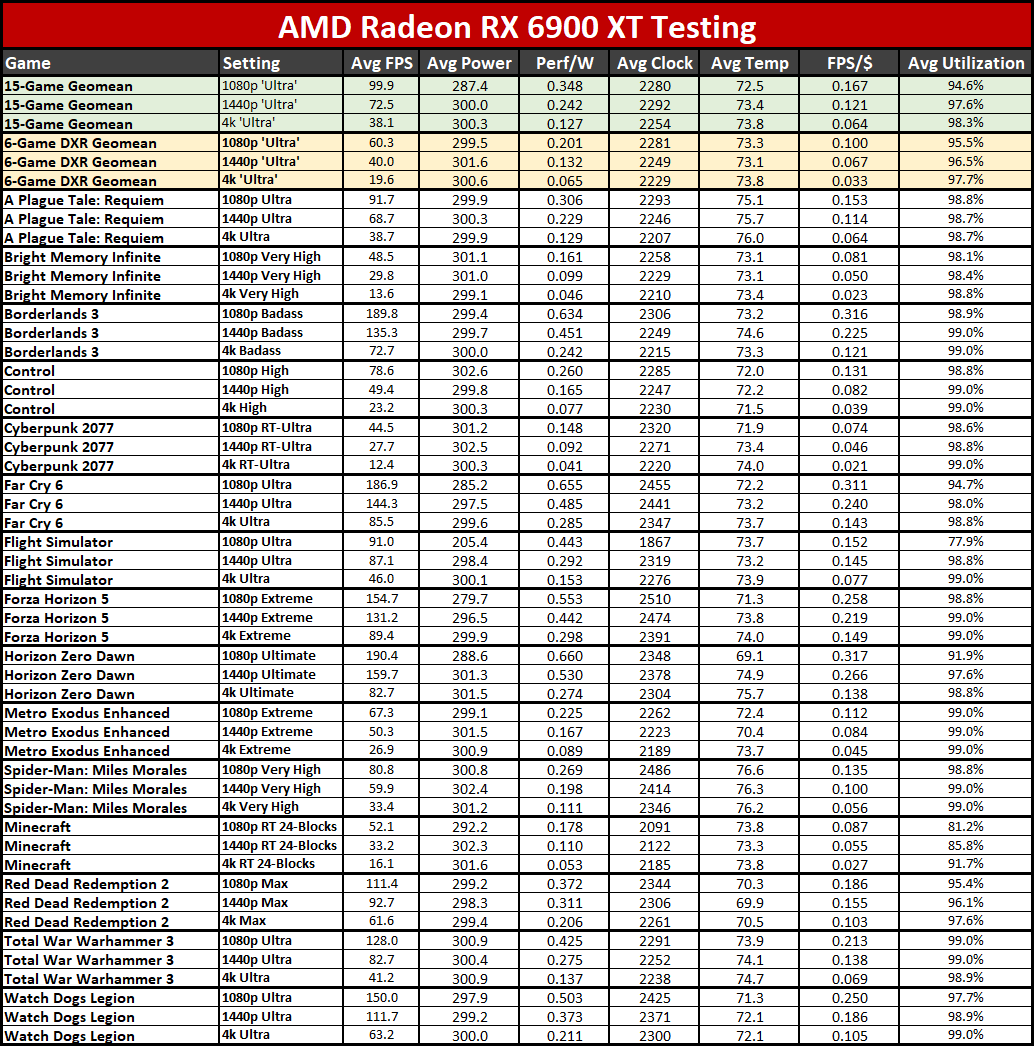
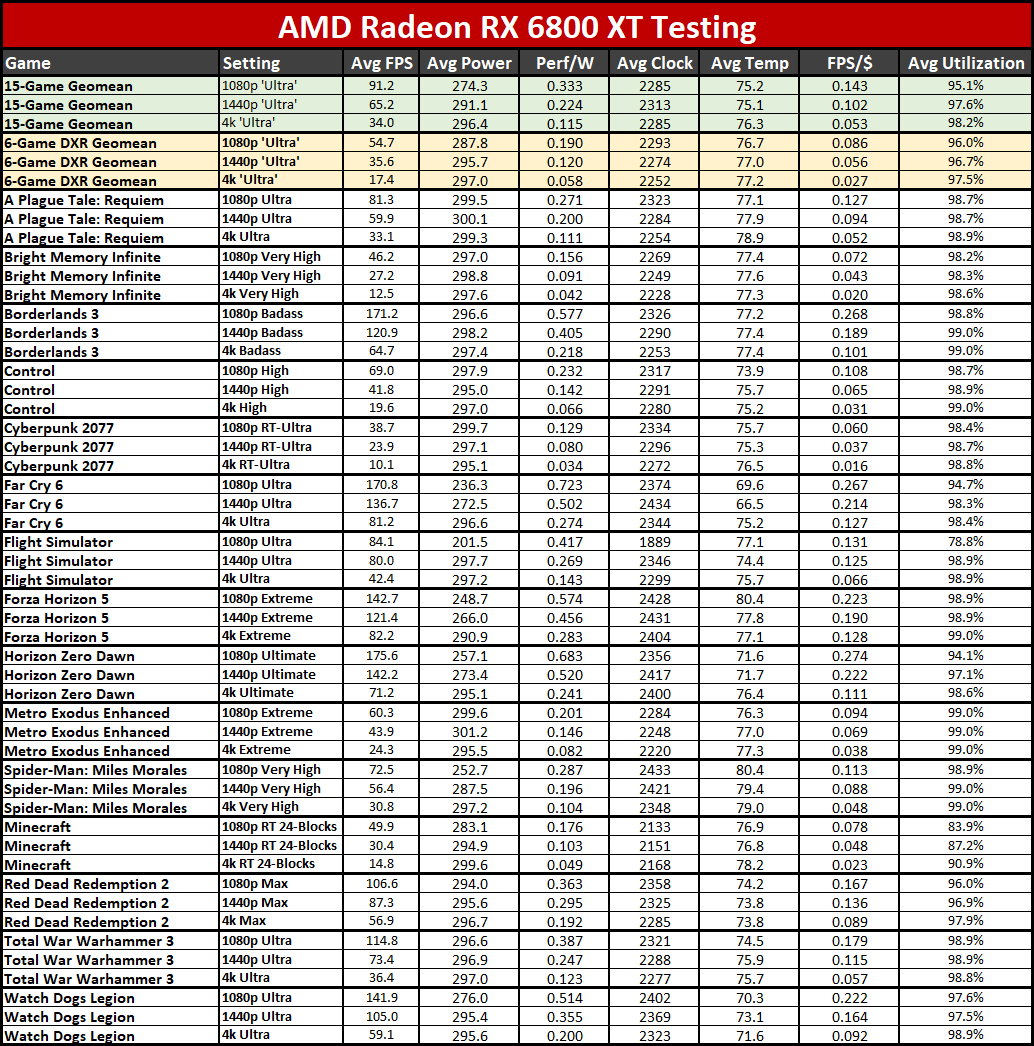
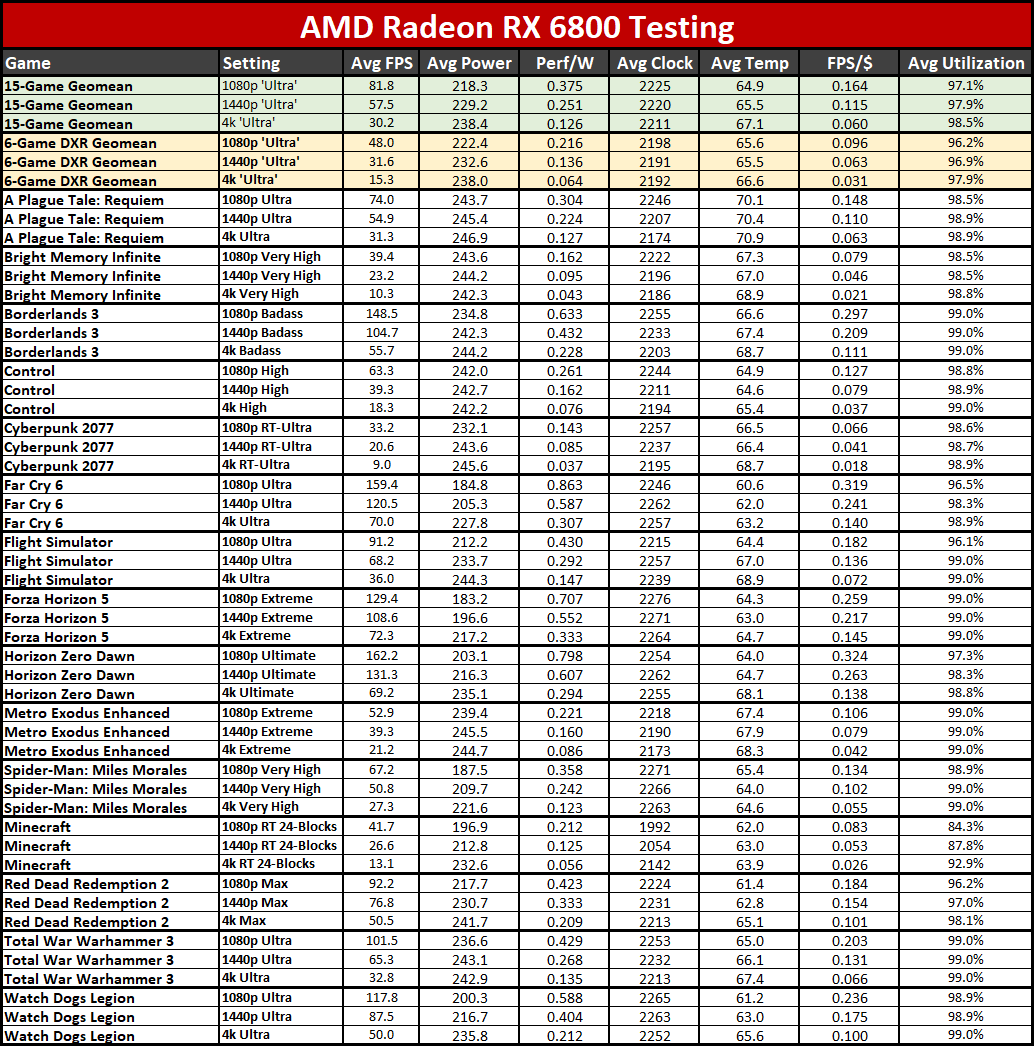
There's a lot of data in the above tables, but we'll mostly focus on the 4070 results. Maximum power use is officially rated for 200W on the reference RTX 4070, and both the Nvidia and PNY models generally stay at or below that limit. Actually, the PNY model tends to use 5–10W less power than the Founders Edition across our test suite.
The most demanding games, in terms of GPU power use, were Borderlands 3, Control, Metro Exodus Enhanced, A Plague Tale: Requiem, and Total War: Warhammer 3. At the other end of the spectrum, Far Cry 6, Forza Horizon 5, Minecraft, Spider-Man: Miles Morales, and Watch Dogs Legion all tend to stay well below the 200W mark.
Efficiency on the RTX 4070 cards is near the top of the list, with only the RTX 4080 sometimes surpassing it. It's no surprise that the previous generation RTX 30-series and RX 6000-series cards can't keep up with the latest GPUs in the efficiency department — it would be pretty terrible if efficiency decreased gen over gen.
The value proposition is another strong point for the RTX 4070. It's generally the best bang for the buck, at least if you're only focusing on the cost of the graphics card and the performance it offers. AMD's RX 6950 XT does come close, however — depending on the current street price.
Average clocks while gaming were consistently in the 2.7 GHz range, with the Founders Edition clocking a bit higher than the PNY model overall. As usual, Nvidia's rated boost clock is quite conservative and most games will exceed it by about 150–200 MHz. Temperatures stayed below 70C for all of our tests, with the Founders Edition beating the PNY by about 5C on average.
Powenetics Testing
Our previous power testing focused more on pushing GPUs to their limit, and while that's a valid approach, we do feel the above power, clocks, and temperature data taken while running our normal gaming benchmarks presents a better view of what to expect. Still, we're keeping the Powenetics testing around as it's also interesting. We run Metro Exodus at settings that will basically max out power draw where possible, and the same goes for FurMark. Here's the data.
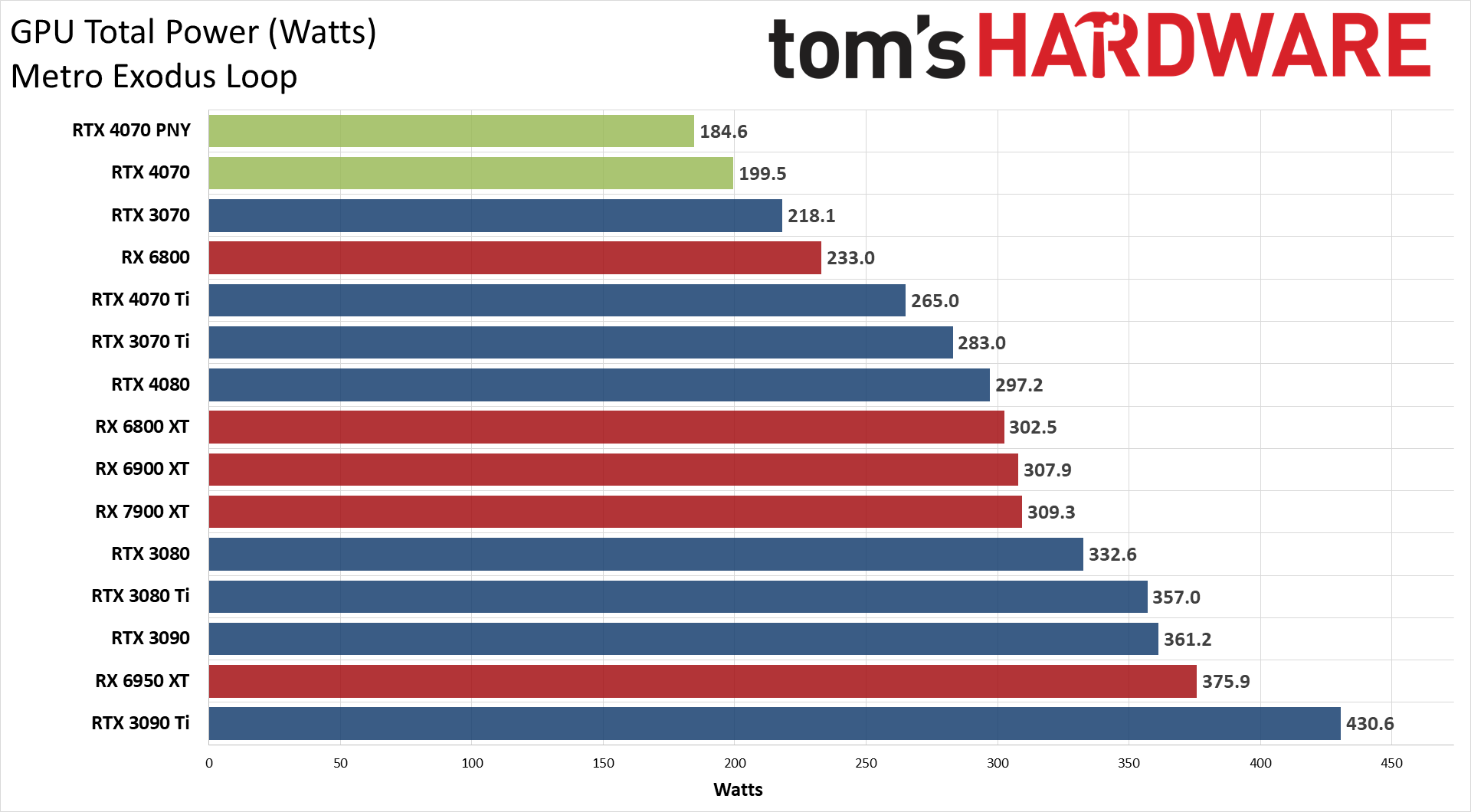
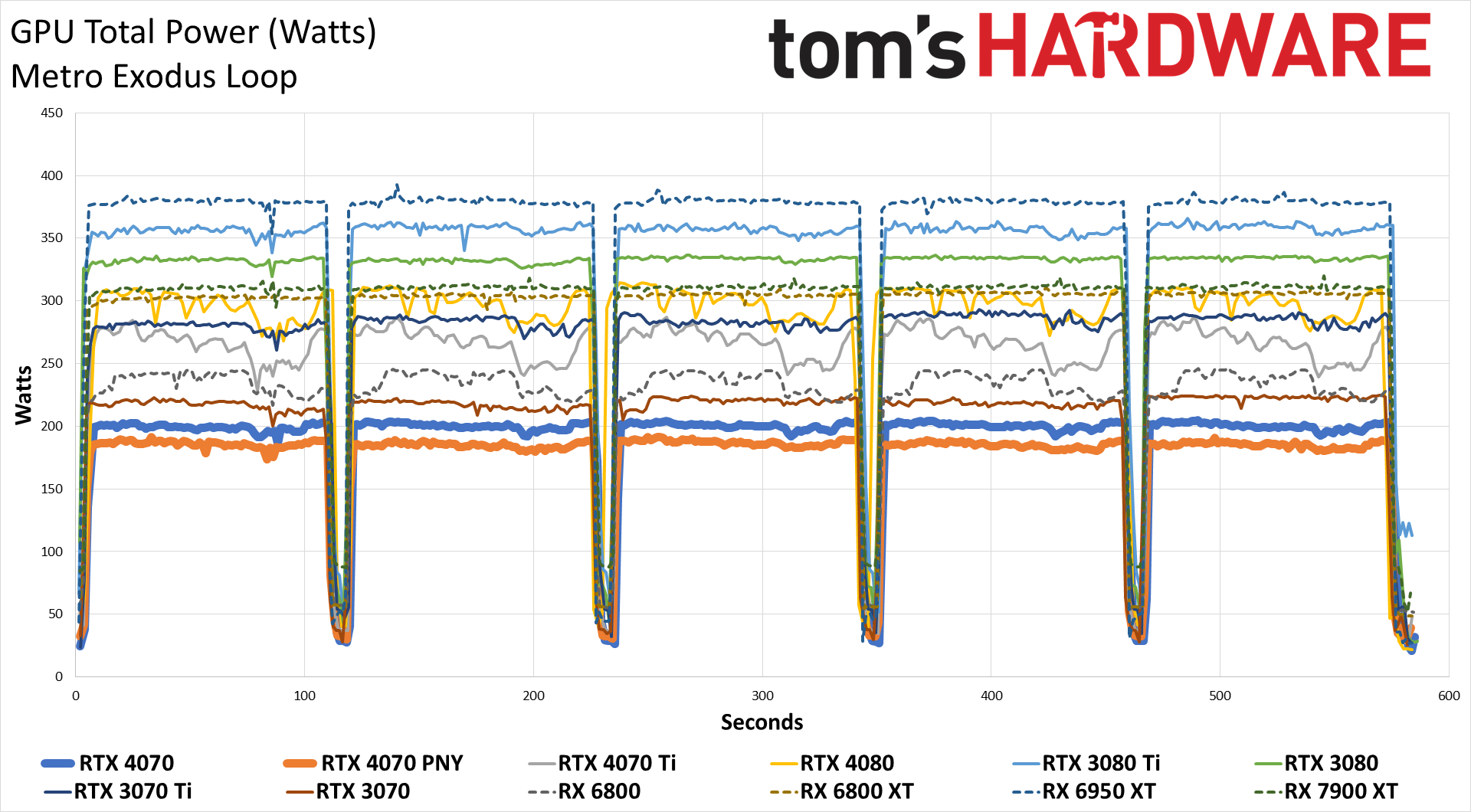
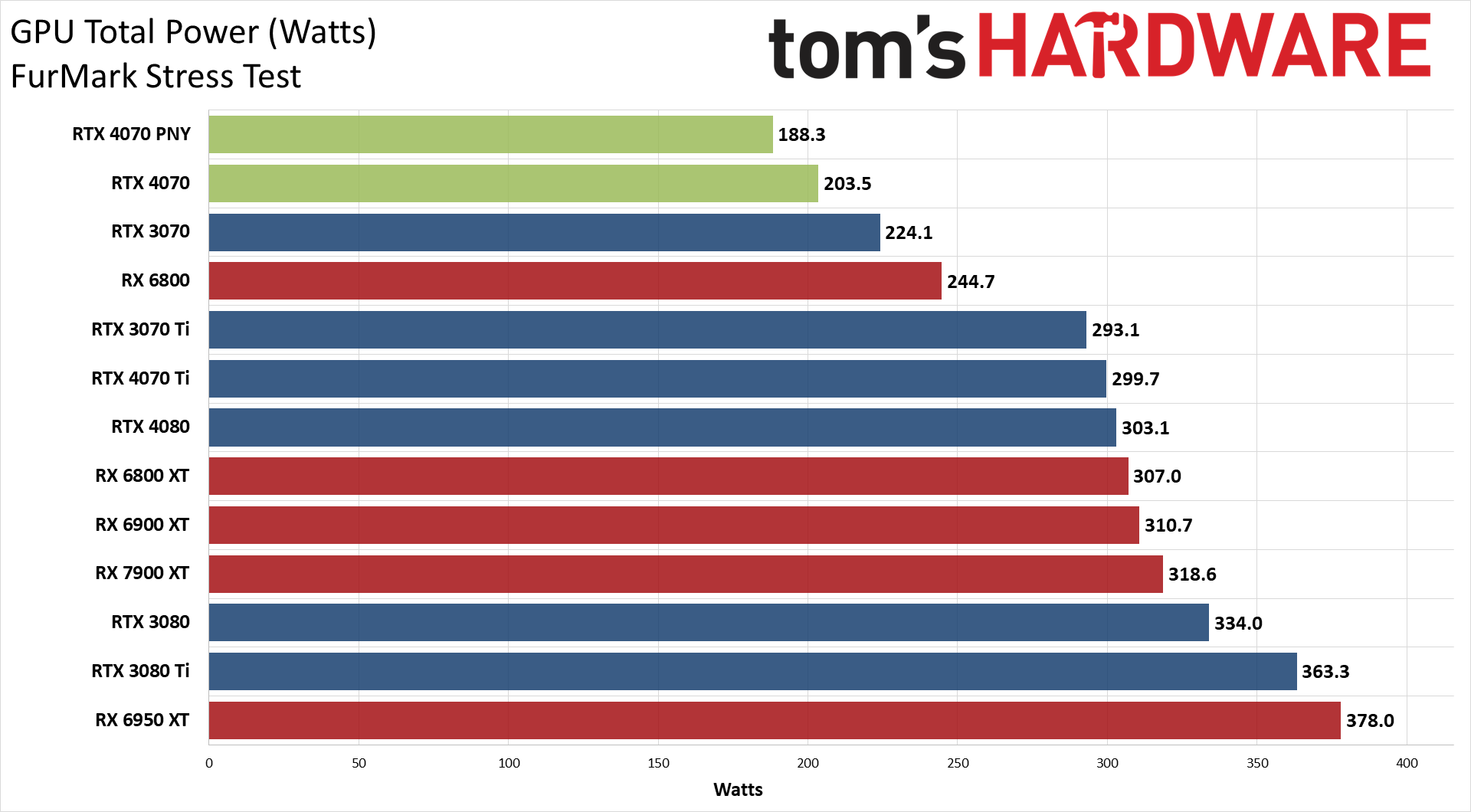
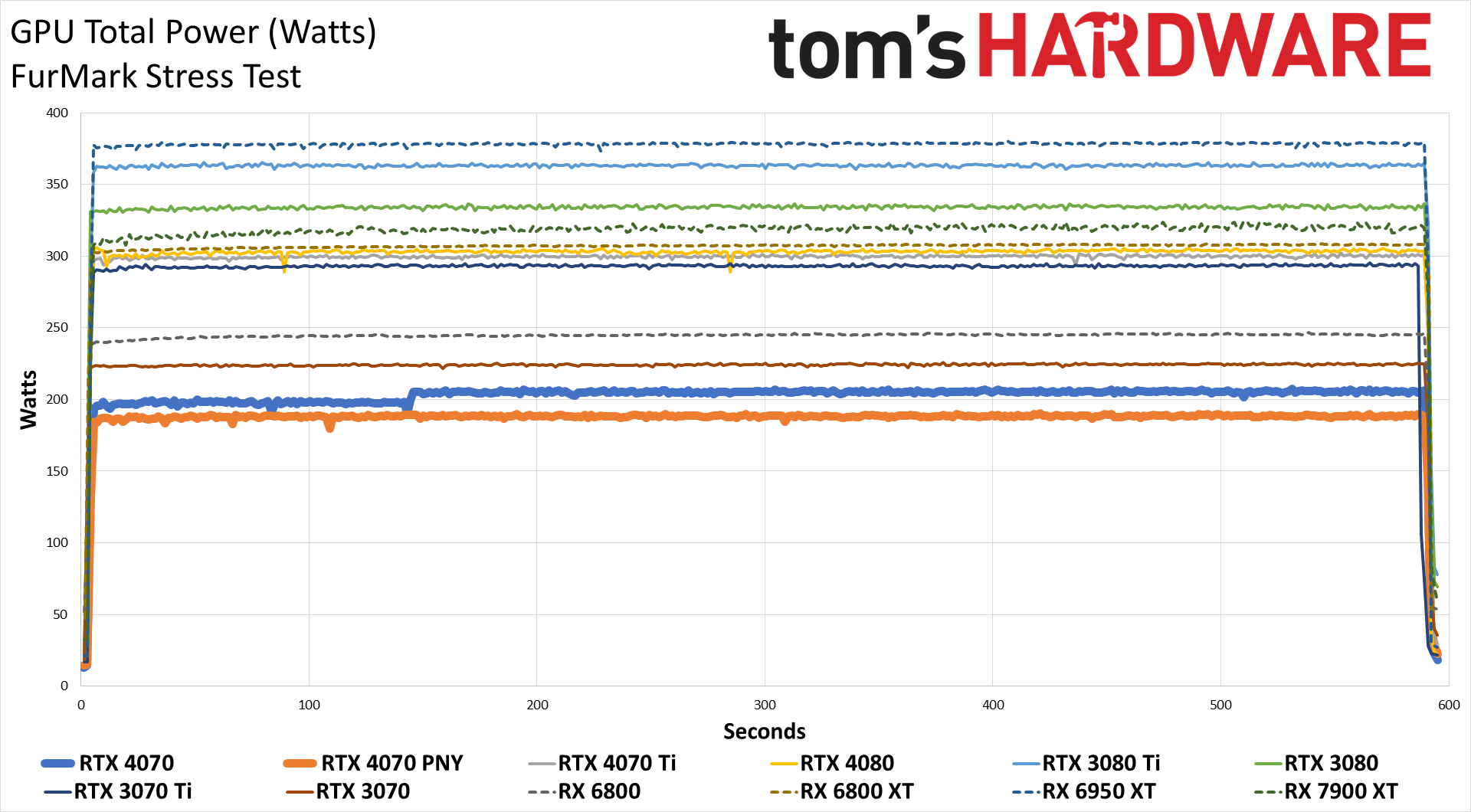
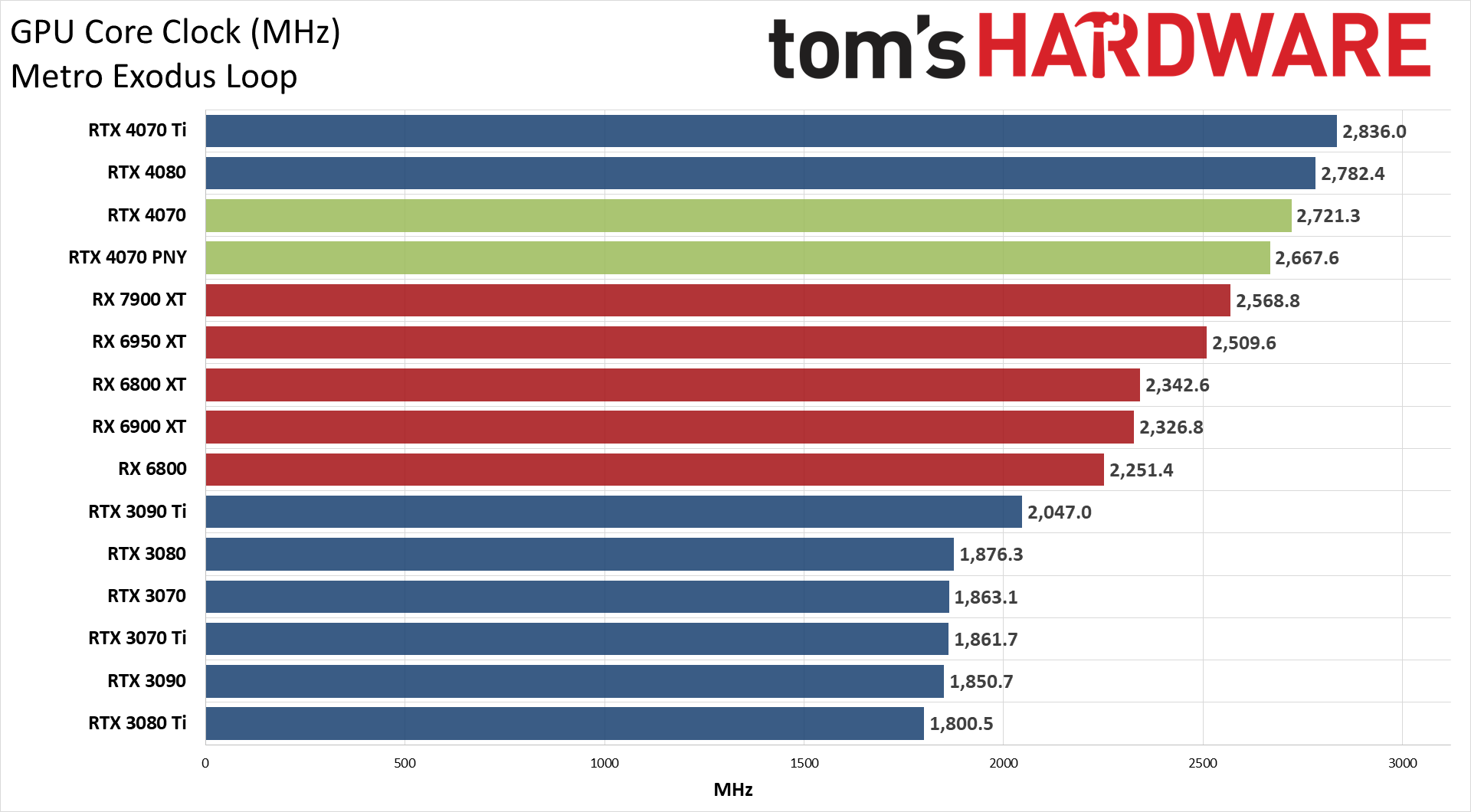
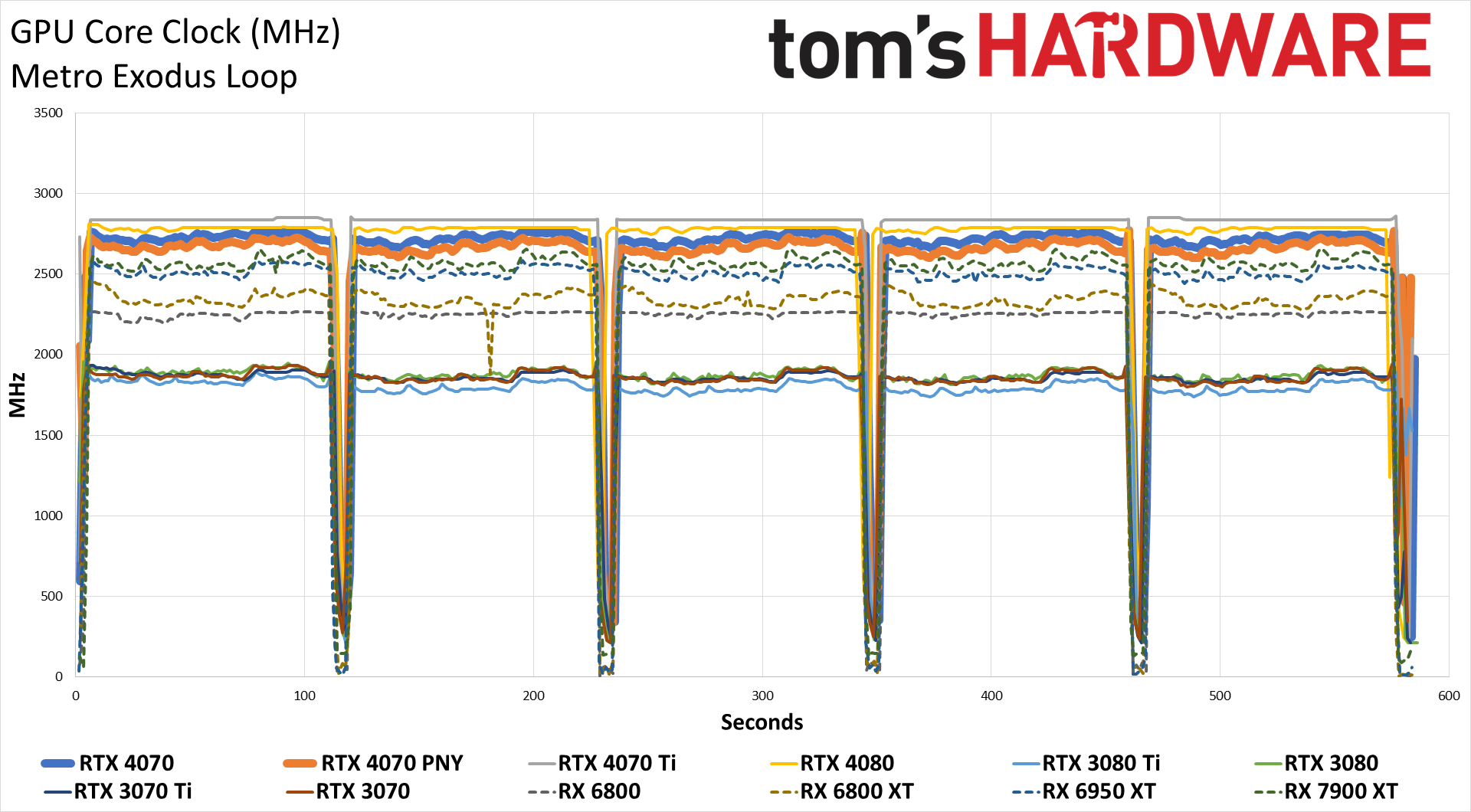
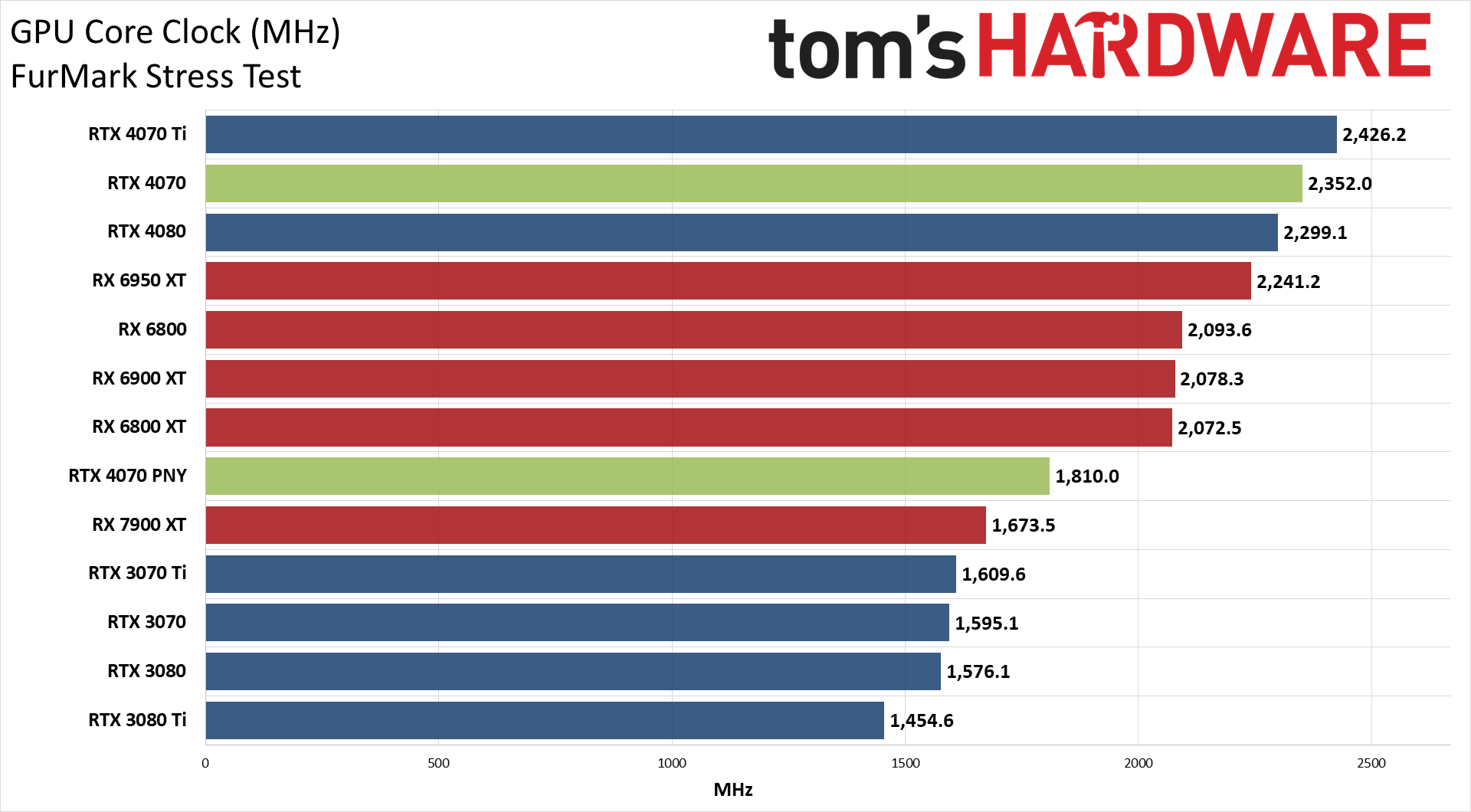
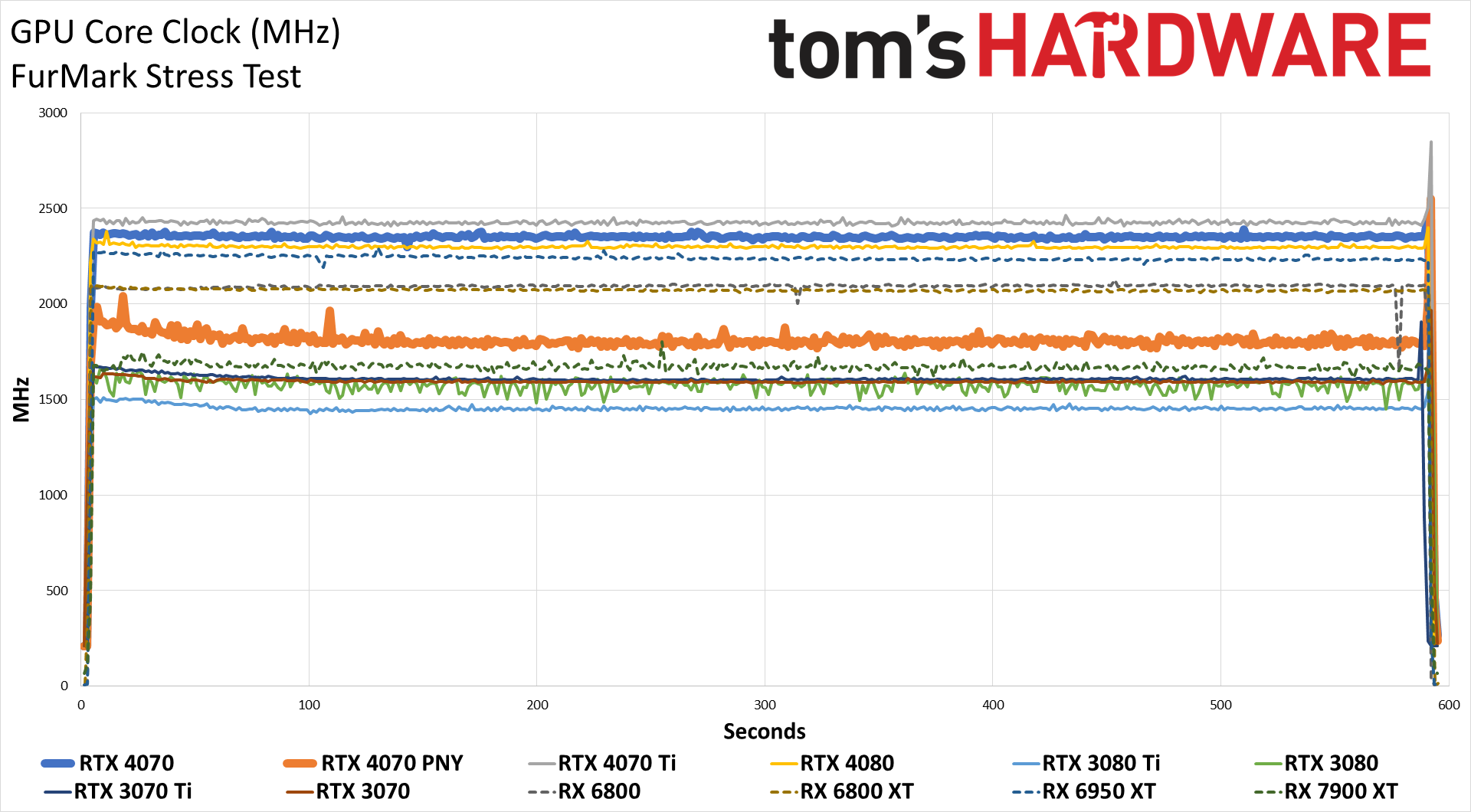
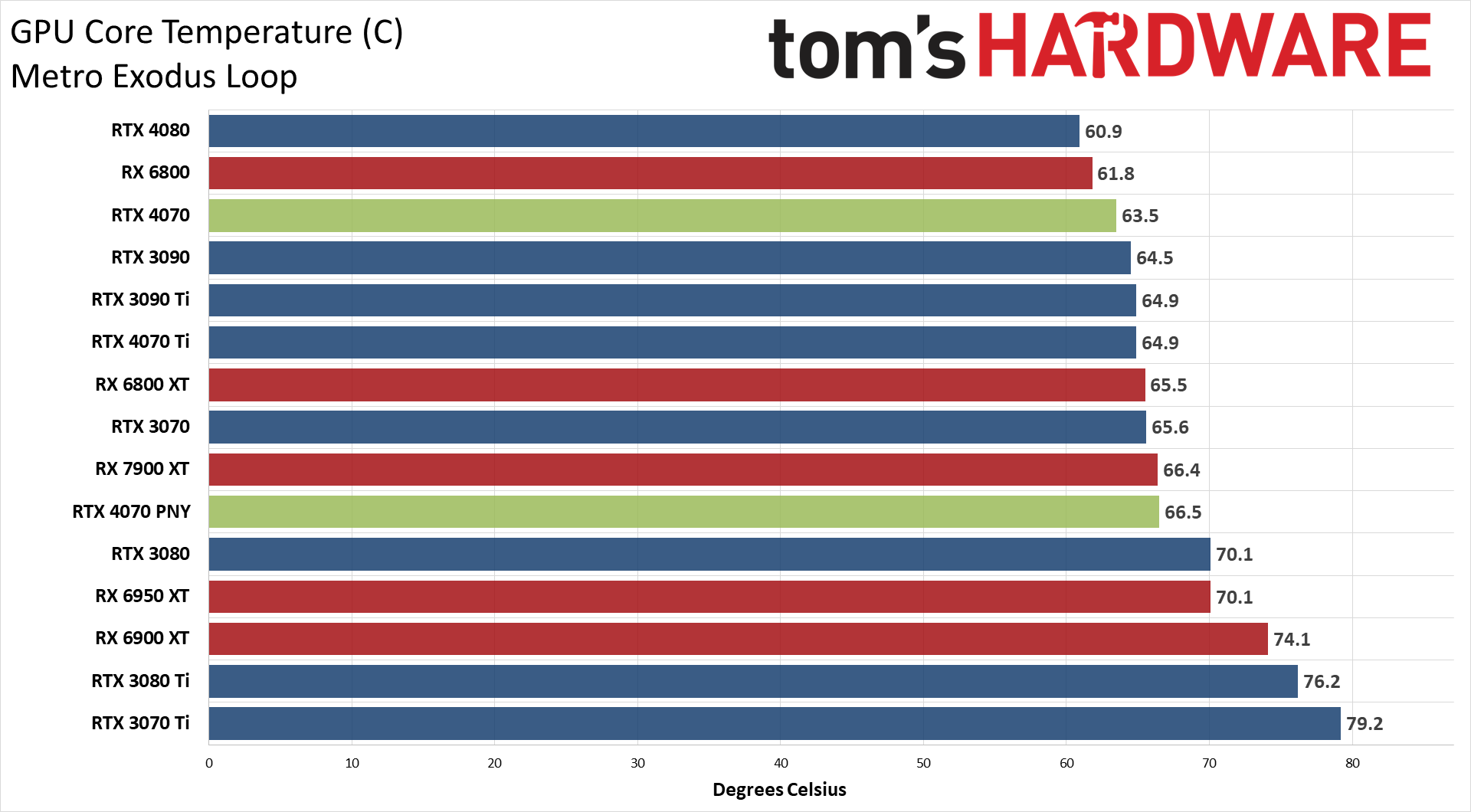
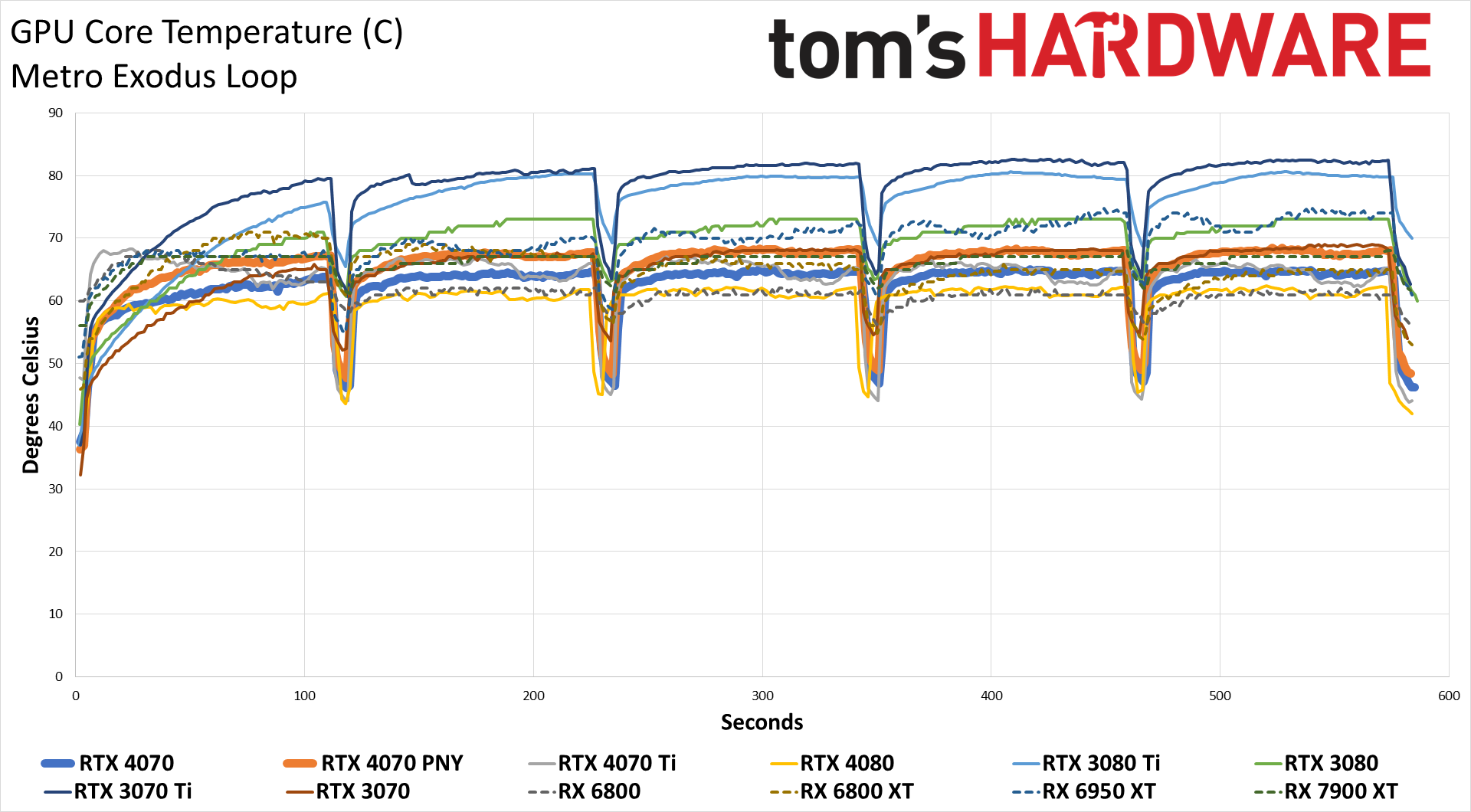
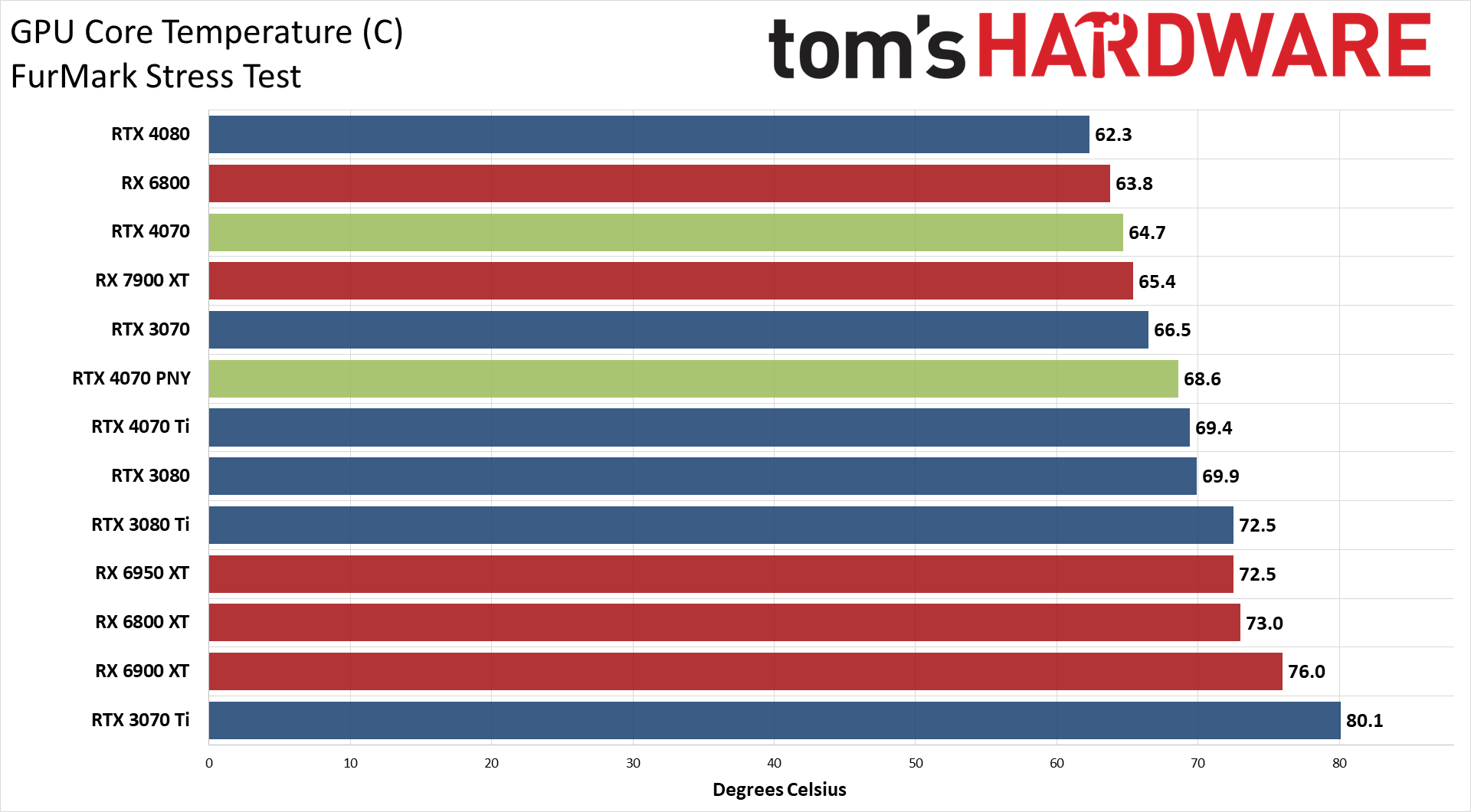
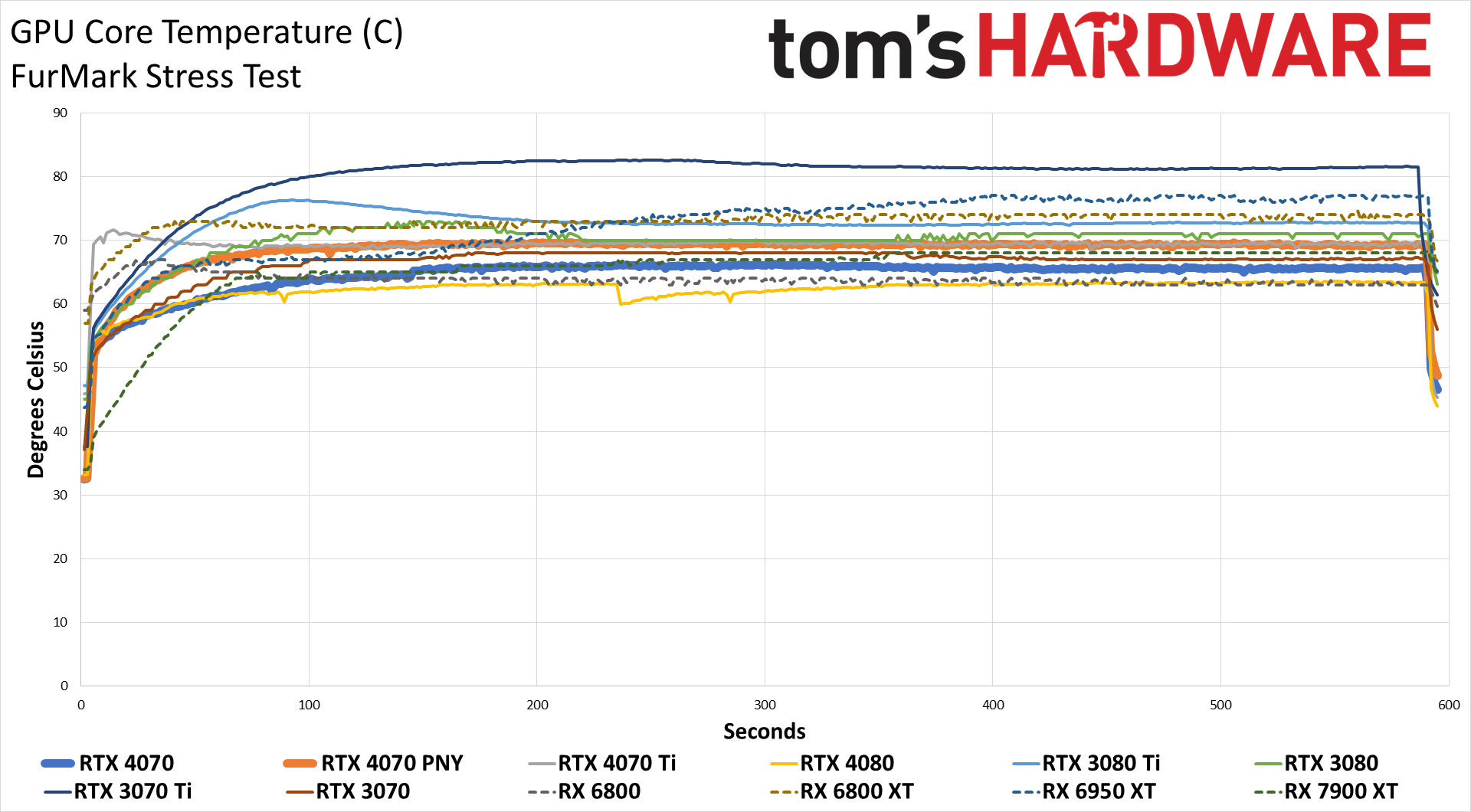
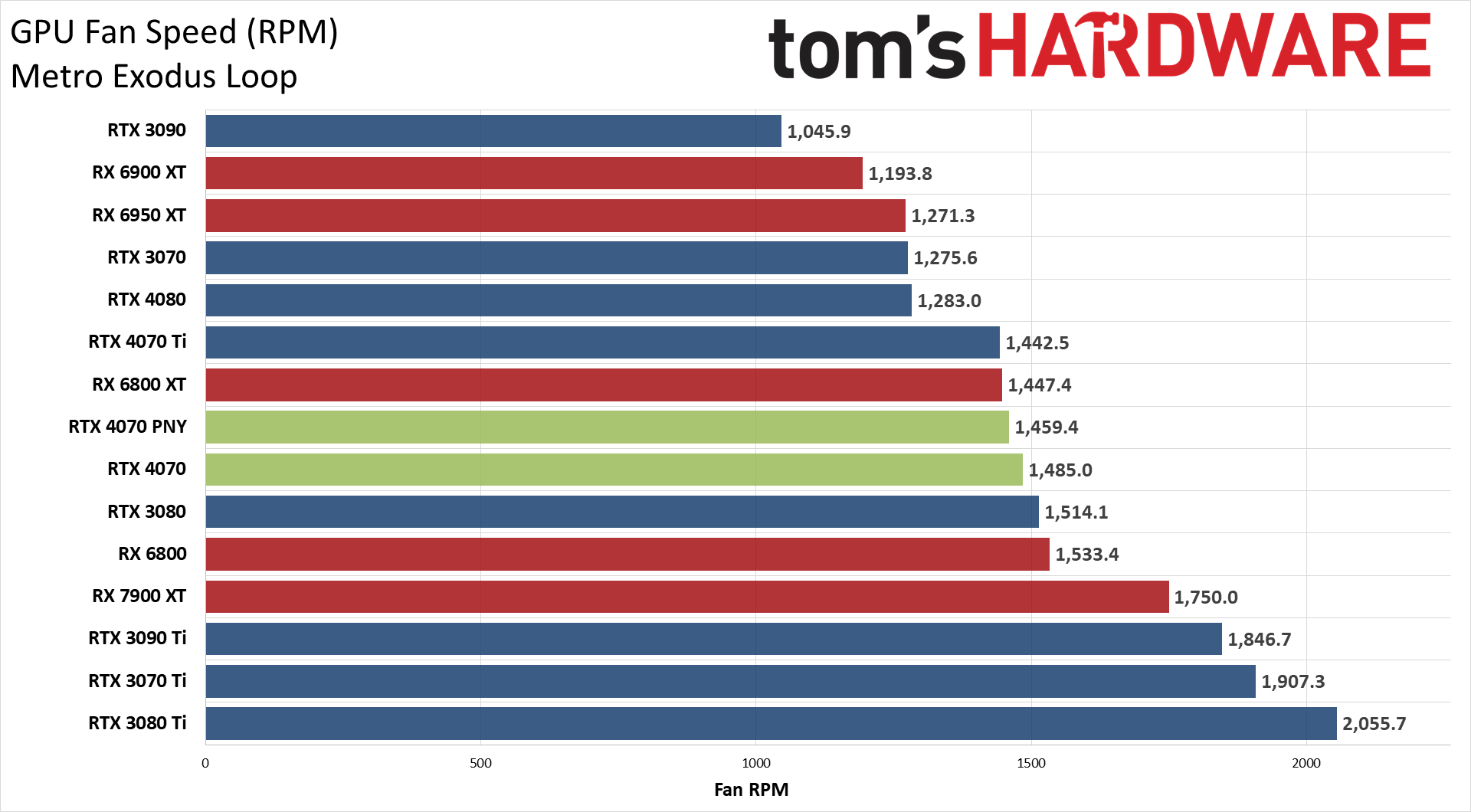
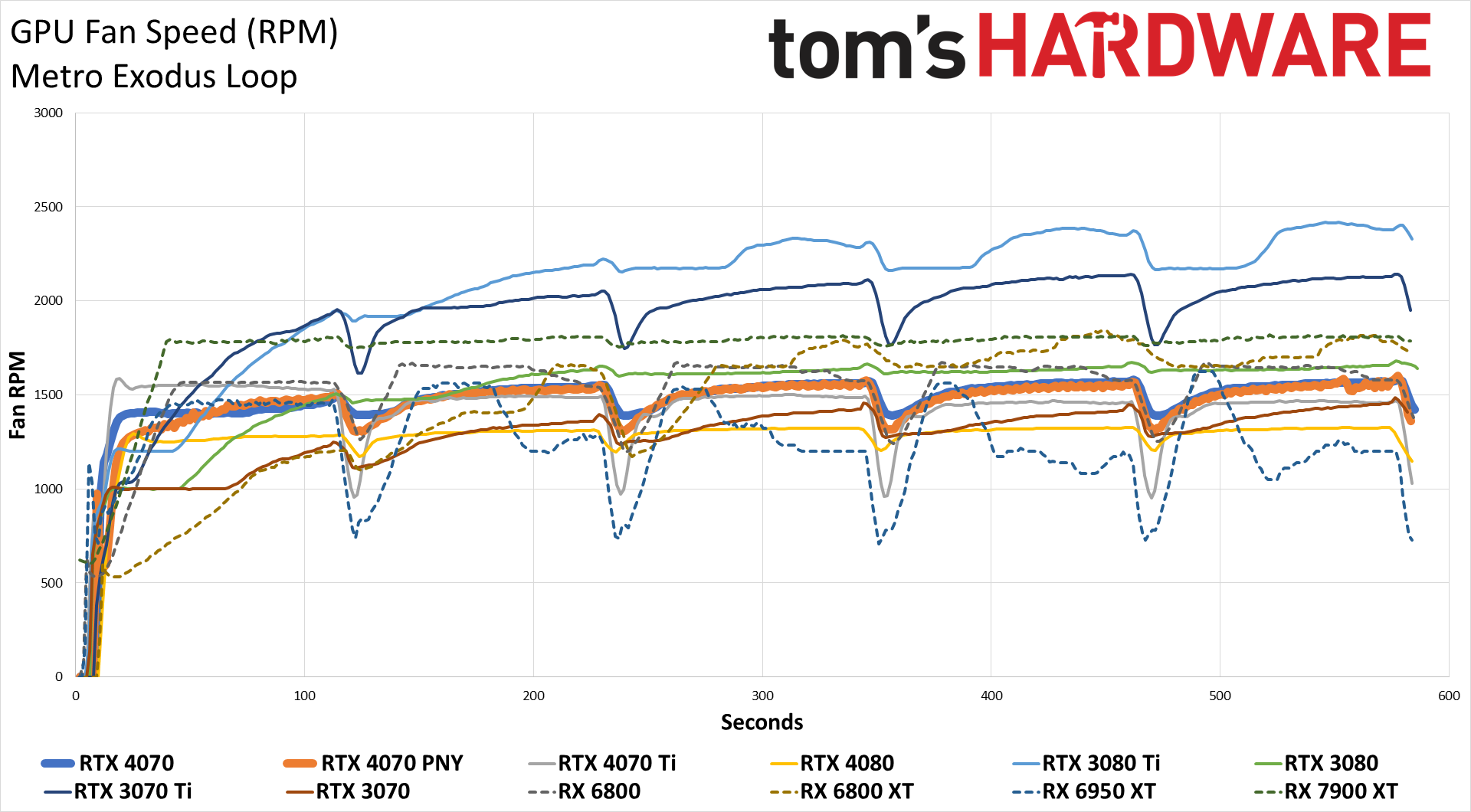
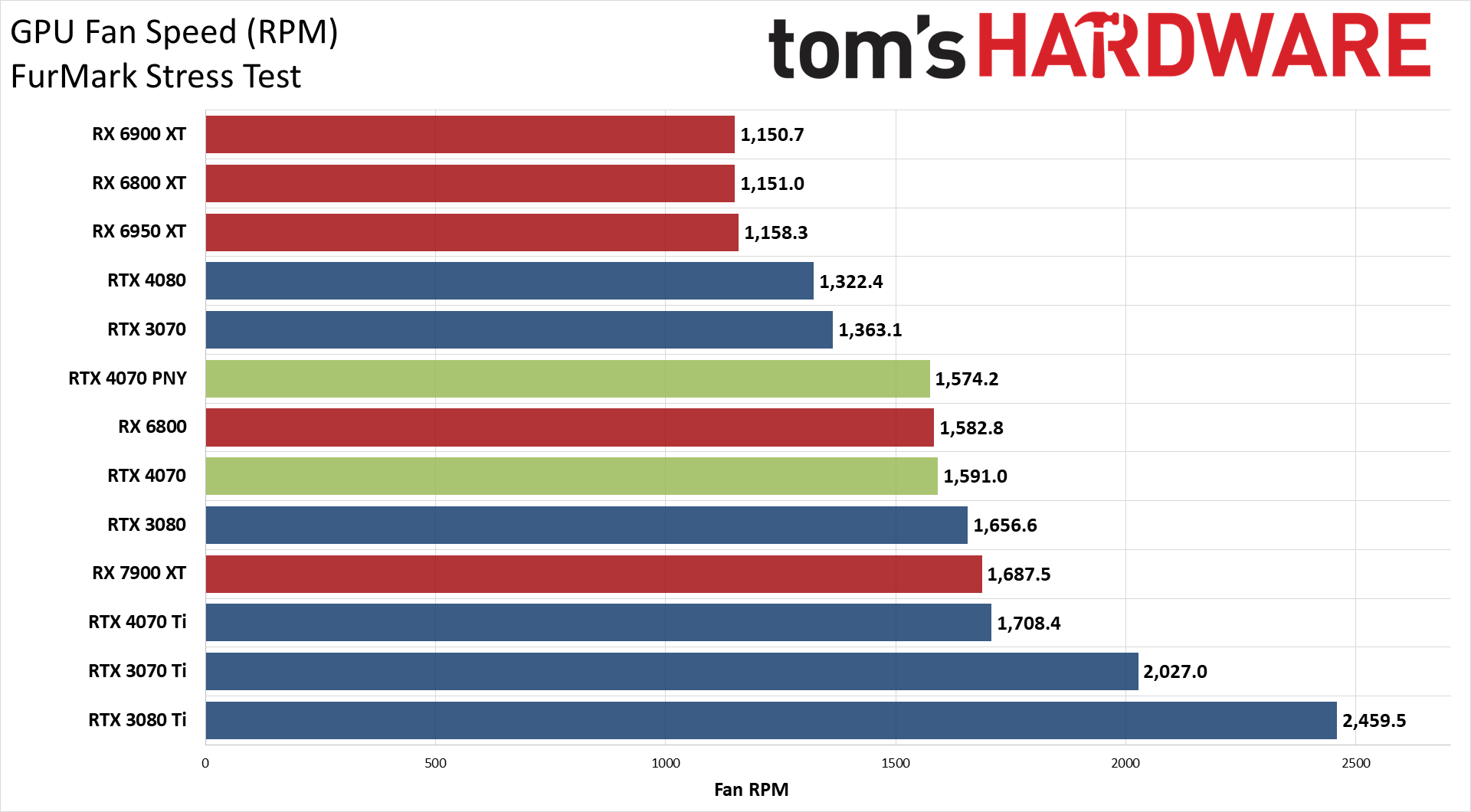
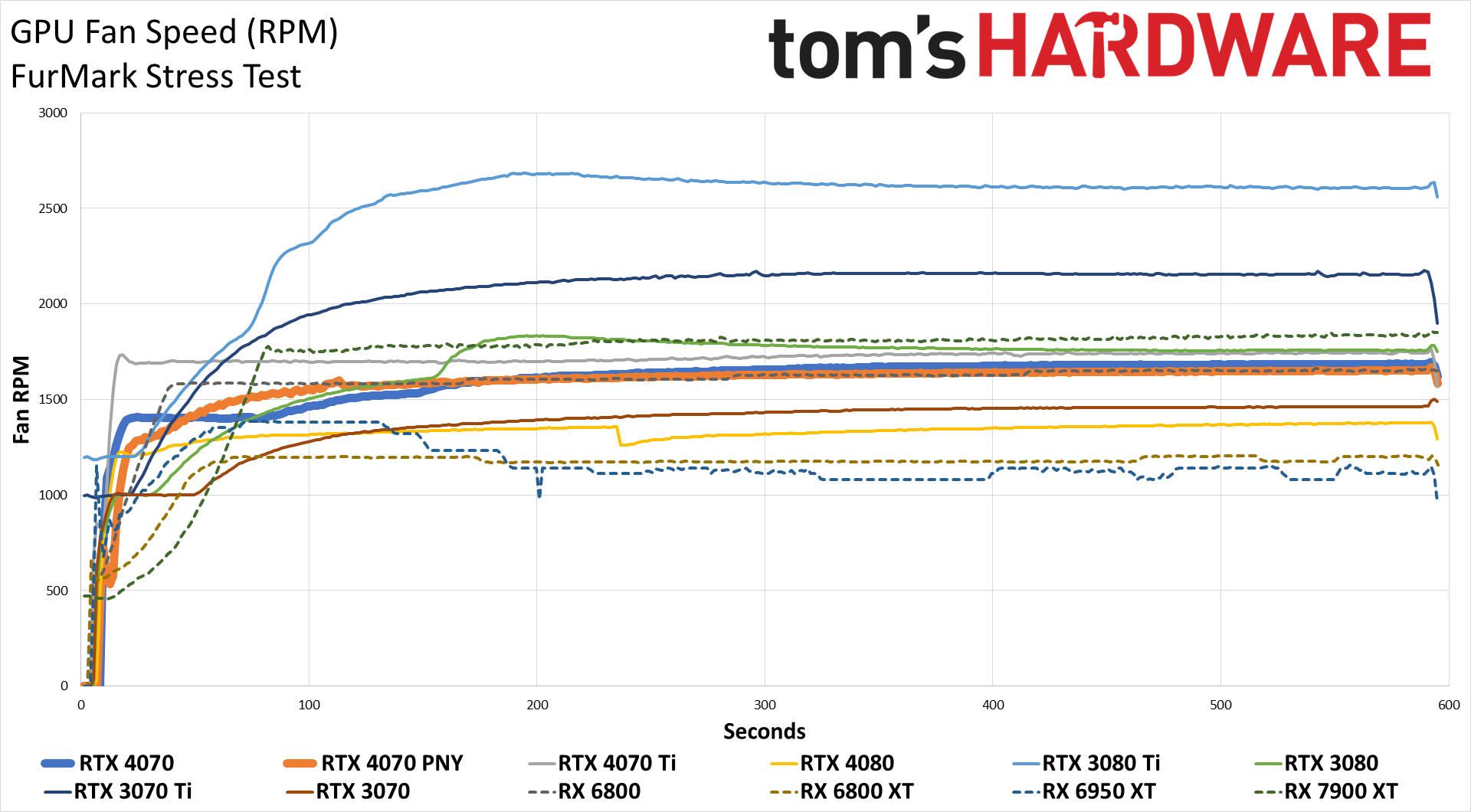
There's little question of which cooler and card are the superior design. PNY takes a conservative approach that drops the GPU clocks more in order to stay within the desired power envelope, and it even tends to run about 10–15W below the rated 200W TGP. Nvidia's Founders Edition meanwhile clocks a bit higher, runs a bit cooler, and uses a bit more power.
There's also a curious bump in power use on the Founders Edition that occurred about two minutes into the test, where it goes from just under 200W to suddenly using 205W. There was no corresponding change in clocks, fan speeds, or temperature, so we don't have a good explanation other than noting that it happened in our testing.
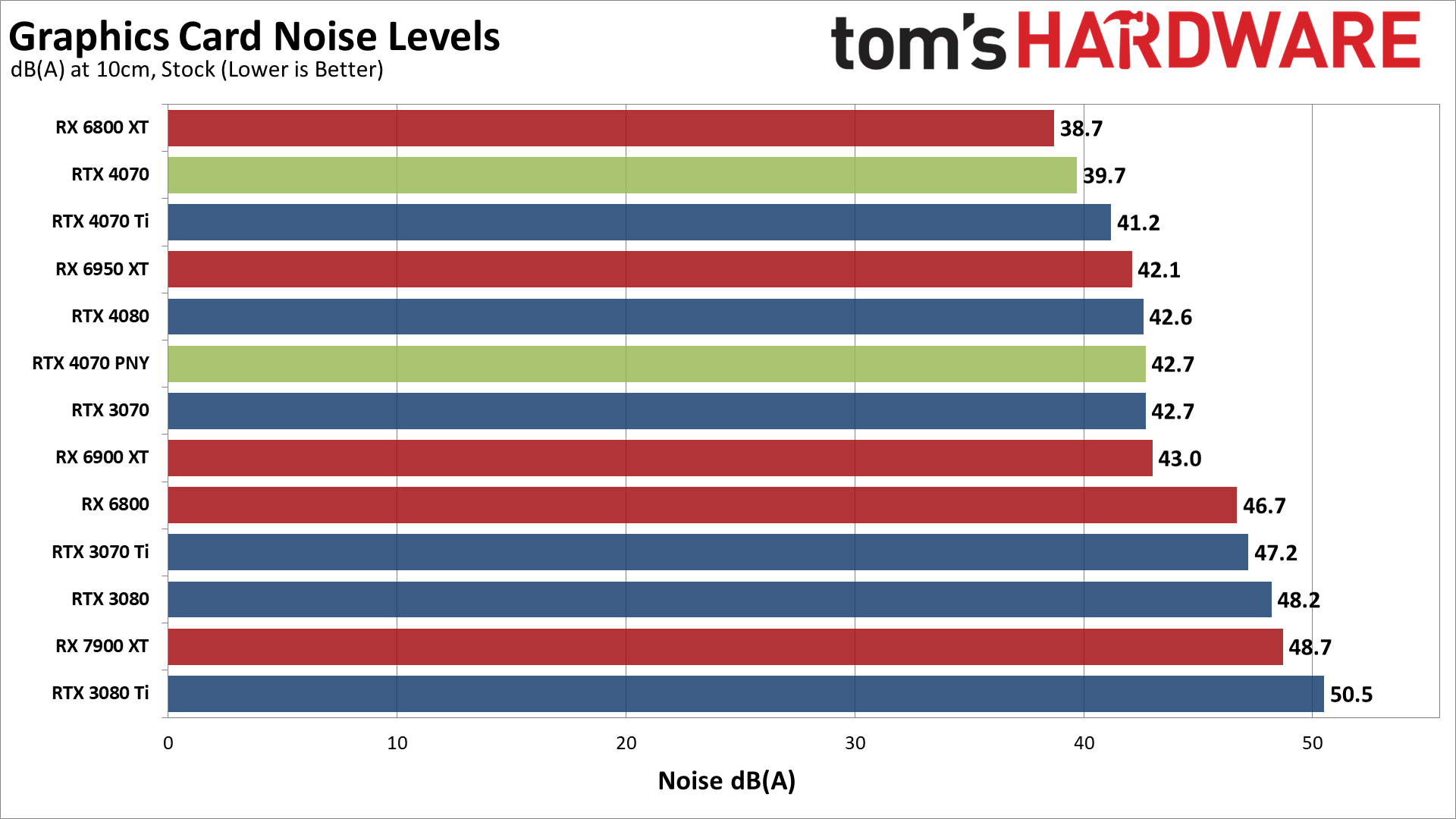
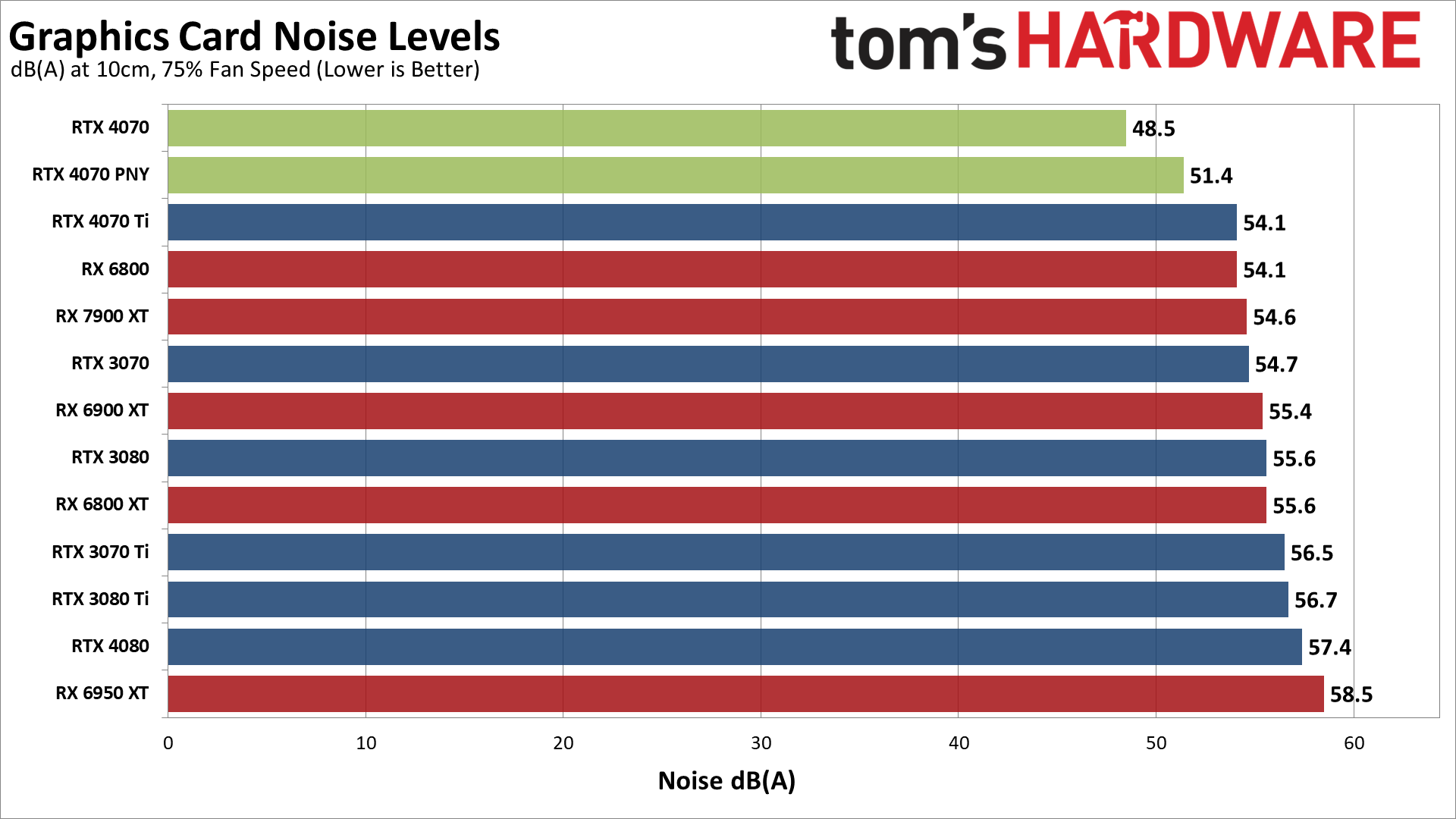
While the power and other data can be interesting, the noise produced by the cards' fans arguably rates as being the more important aspect. We check noise levels using an SPL (sound pressure level) meter placed 10cm from the card, with the mic aimed right at the center of one fan: the center fan if there are three fans, or the the right fan for two fans — or the only fan facing to the left of the card in the case of the RTX 4070 Founders Edition. This helps minimize the impact of other noise sources like the fans on the CPU cooler. The noise floor of our test environment and equipment is around 31–32 dB(A).
After running Metro for over 15 minutes, the RTX 4070 Founders Edition settled in at a fan speed of 56% and a noise level of 39.7 dB(A). That's about as quiet as almost any high-end GPU we've tested during the past couple of years, though not particularly surprising considering the card only has to dissipate 200W. PNY's RTX 4070 ended up being slightly louder at 42.7 dB(A) with 57% fan speed, likely because the two fans aren't of the same level as the Nvidia fans (plus one Nvidia fan is on the opposite side of the card).
We also tested with a static fan speed of 75%, which caused the RTX 4070 Founders Edition to generate 48.5 dB(A) of noise. The PNY card had a noise level of 51.4 dB(A) with the fans at 75%. We don't expect the cards would normally ever hit that level without overclocking, but it does give you some idea of what you can expect in warmer environments.
- MORE: Best Graphics Cards
- MORE: GPU Benchmarks and Hierarchy
- MORE: All Graphics Content
Get Tom's Hardware's best news and in-depth reviews, straight to your inbox.
Current page: GeForce RTX 4070: Power, Clocks, Temps, Fans, and Noise
Prev Page GeForce RTX 4070: Professional Content Creation and AI Performance Next Page GeForce RTX 4070: Efficient and Affordable
Jarred Walton is a senior editor at Tom's Hardware focusing on everything GPU. He has been working as a tech journalist since 2004, writing for AnandTech, Maximum PC, and PC Gamer. From the first S3 Virge '3D decelerators' to today's GPUs, Jarred keeps up with all the latest graphics trends and is the one to ask about game performance.
-
Elusive Ruse If there were no previous gen high-end GPUs available this would be a good buy but at this price you can just buy a new AIB 6950XT.Reply -
PlaneInTheSky So it offers similar performance to the 3080 and launches at an only slightly lower MSRP.Reply
Going by price leaks of some AIB, we will be lucky if we're not going backwards in price / performance.
In 2 years time since the 3080, performance per $ has barely increased.
The 12GB VRAM is depressing too, considering a RX 6950XT offers 16GB for the same price.
DLSS 3.0 doesn't interest me in the slightest since it's just glorified frame interpolation that does nothing to help responsiveness, it actually adds lag.
It's hard to get excited about PC Gaming when it is in such a terrible state. -
PlaneInTheSky In Europe, price/performance of Nvidia GPU generation-generation has basically flatlined now.Reply
3080 MSRP: €699
4070 MSRP: €669
That's the state PC gaming is in now. In 2 years time, no improvement in price/performance.
It is a good example of what happens in a duopoly market without competition. -
peachpuff Reply
That's really sad, how many gold plated leather jackets does jensen really need?PlaneInTheSky said:In 2 years time since the 3080, performance per $ has barely increased.
-
DSzymborski The 4070 is releasing at a significantly lower price than the 3080. $699 in September 2020 is $810 in March 2023 dollars. $200 over the 4070 MSRP of $599 is a significant amount. Now, few 4070s will be available at $599, but then few 3080s were actually available at $699 (which, again, is $810 in current dollars).Reply
The 3070 was released at an MSRP of $499, which is $578 in March 2023 dollars. -
Exphius_Mortum Title of the article needs a little adjustment, it should read as followsReply
Nvidia GeForce RTX 4070 Review: Mainstream Ada Arrives at Enthusiast Pricing -
Elusive Ruse @JarredWaltonGPU thanks for the review, I saw that you retested all the GPUs with recent drivers which must have taken a huge effort (y)Reply
PS: Are you planning to add or replace some older titles with new games for future benchmarks? -
btmedic04 Hey look, a 1.65% performance improvement per 1% more money card when compared to the 3070. It's disappointing that's where we are at with gpus these daysReply -
healthy Pro-teen Reply
A duopoly at best, it's almost a monopoly. AMD will probably undercut it by a small amount, get middling reviews and then heavily discount the GPU only when most people have already decided on the 4070. 6950XT is discounted right now and offers better value and the average gamer doesn't know it, so 4070 will sell regardless.PlaneInTheSky said:In Europe, price/performance of Nvidia GPU generation-generation has basically flatlined now.
3080 MSRP: €699
4070 MSRP: €669
That's the state PC gaming is in now. In 2 years time, no improvement in price/performance.
It is a good example of what happens in a duopoly market without competition.
